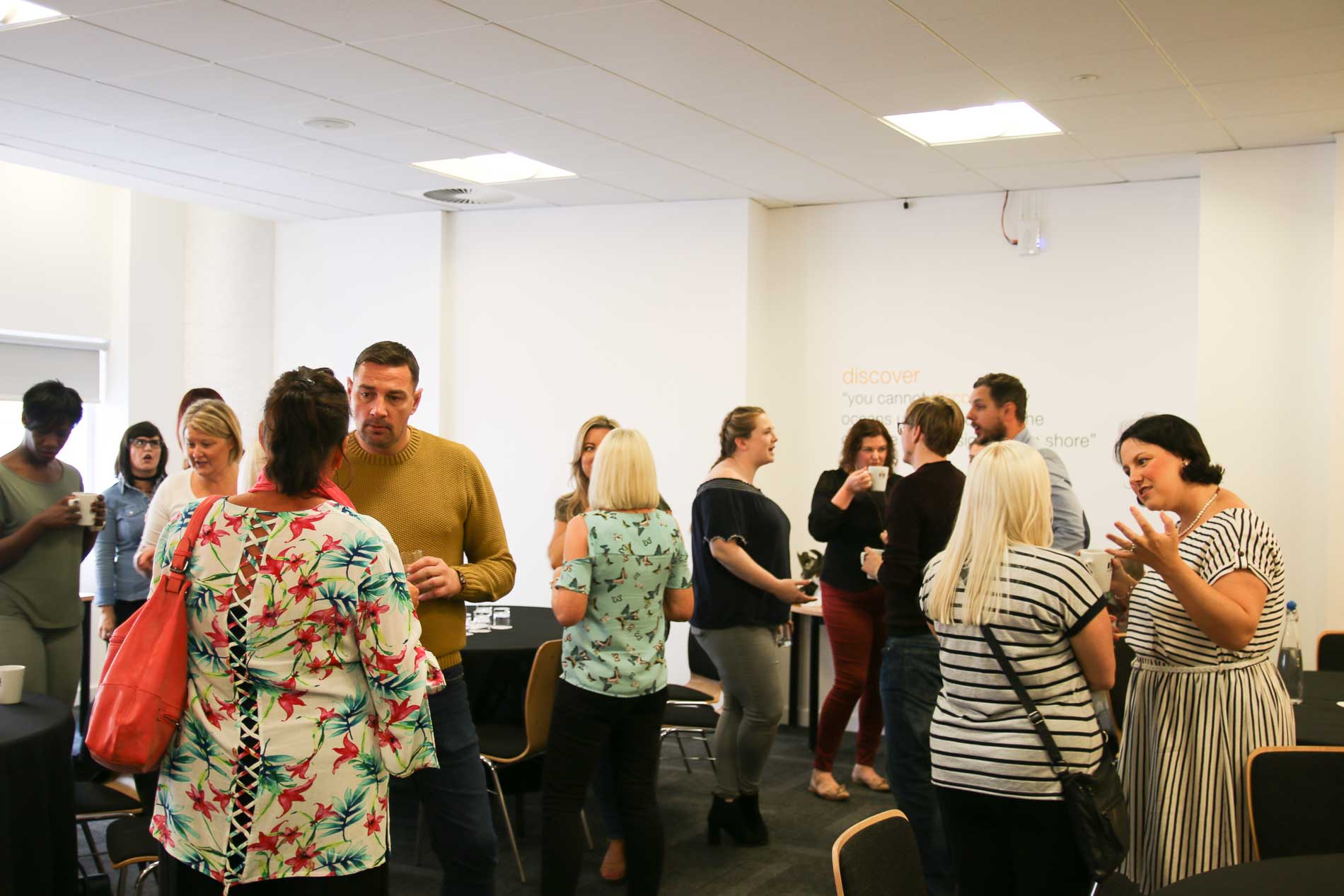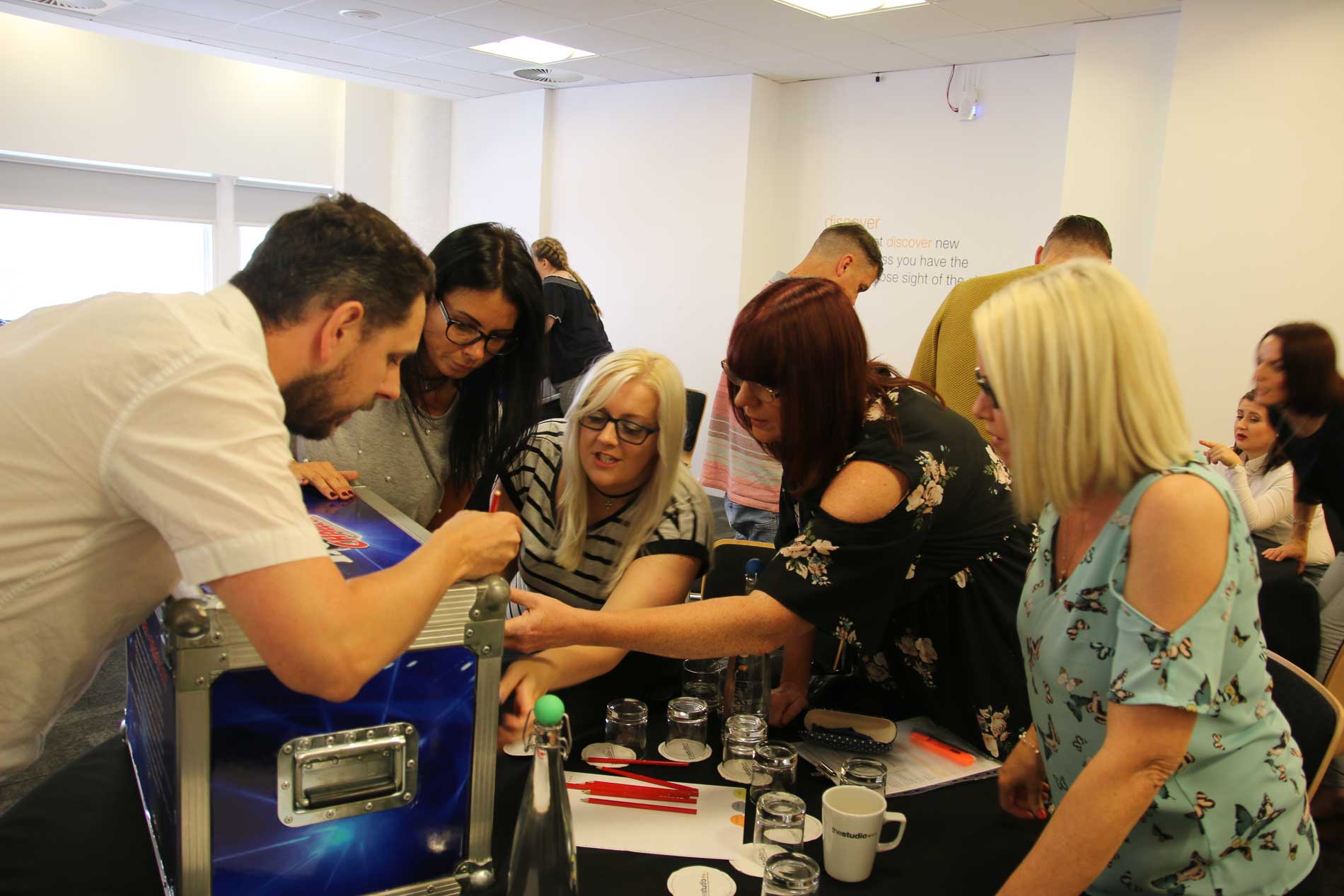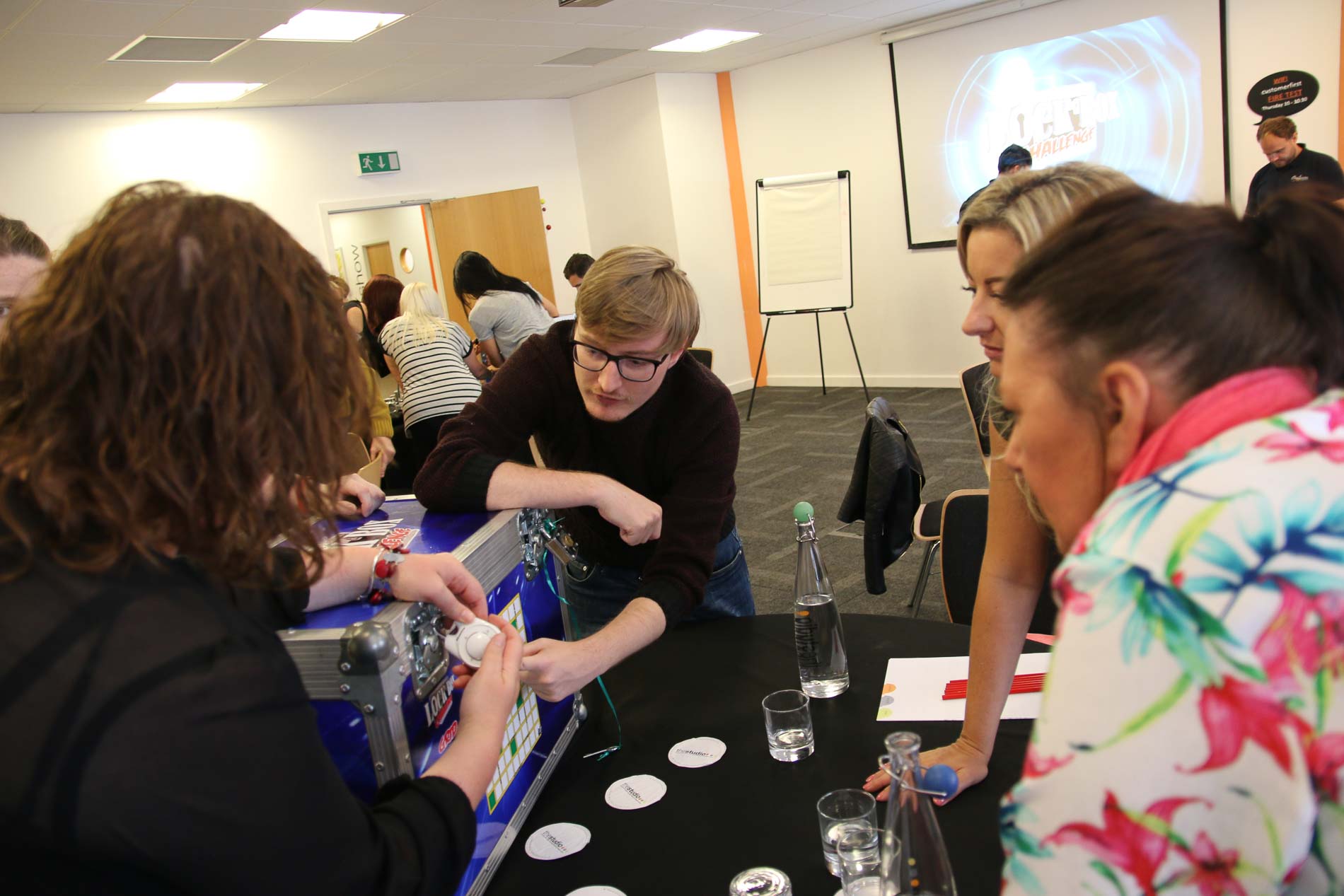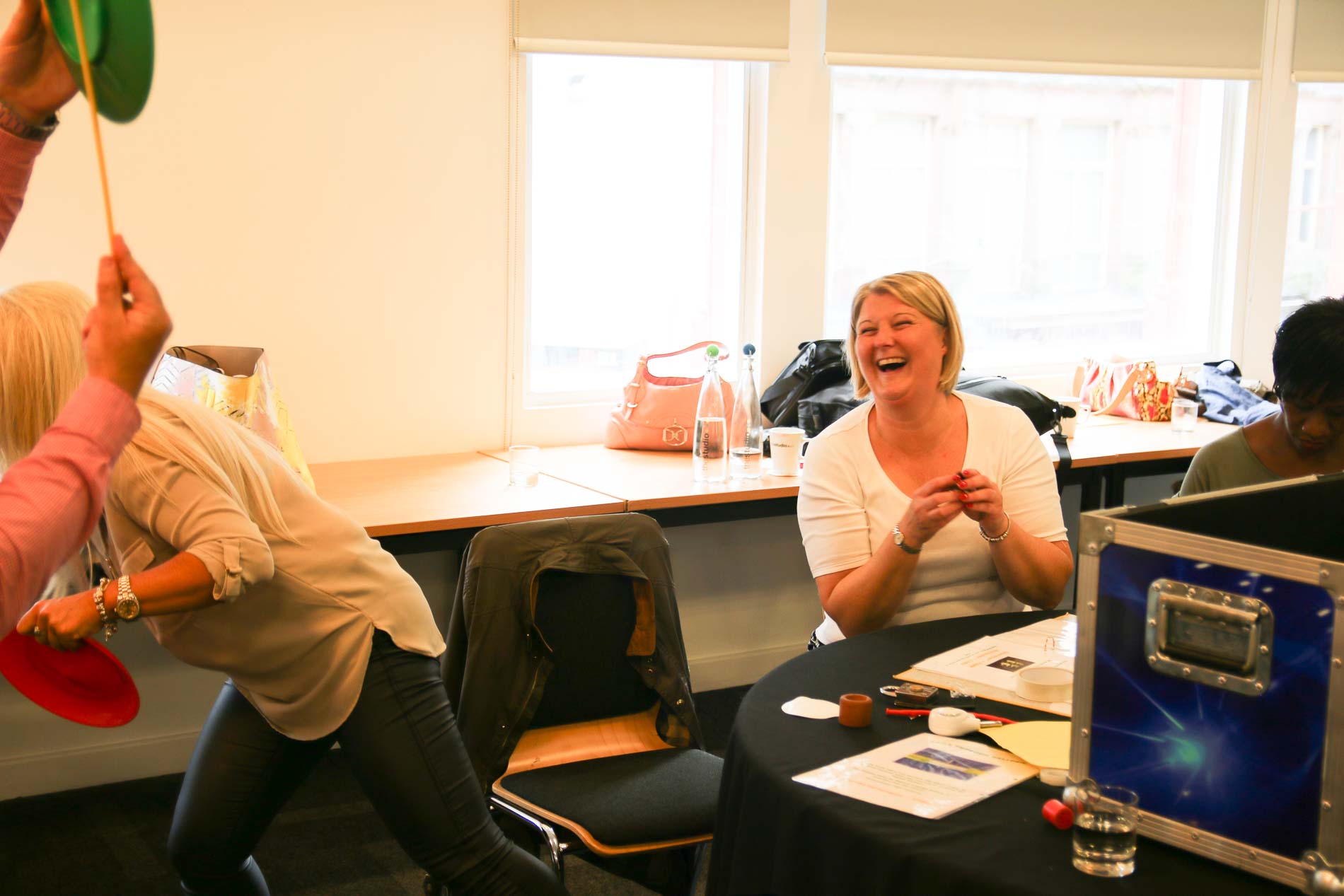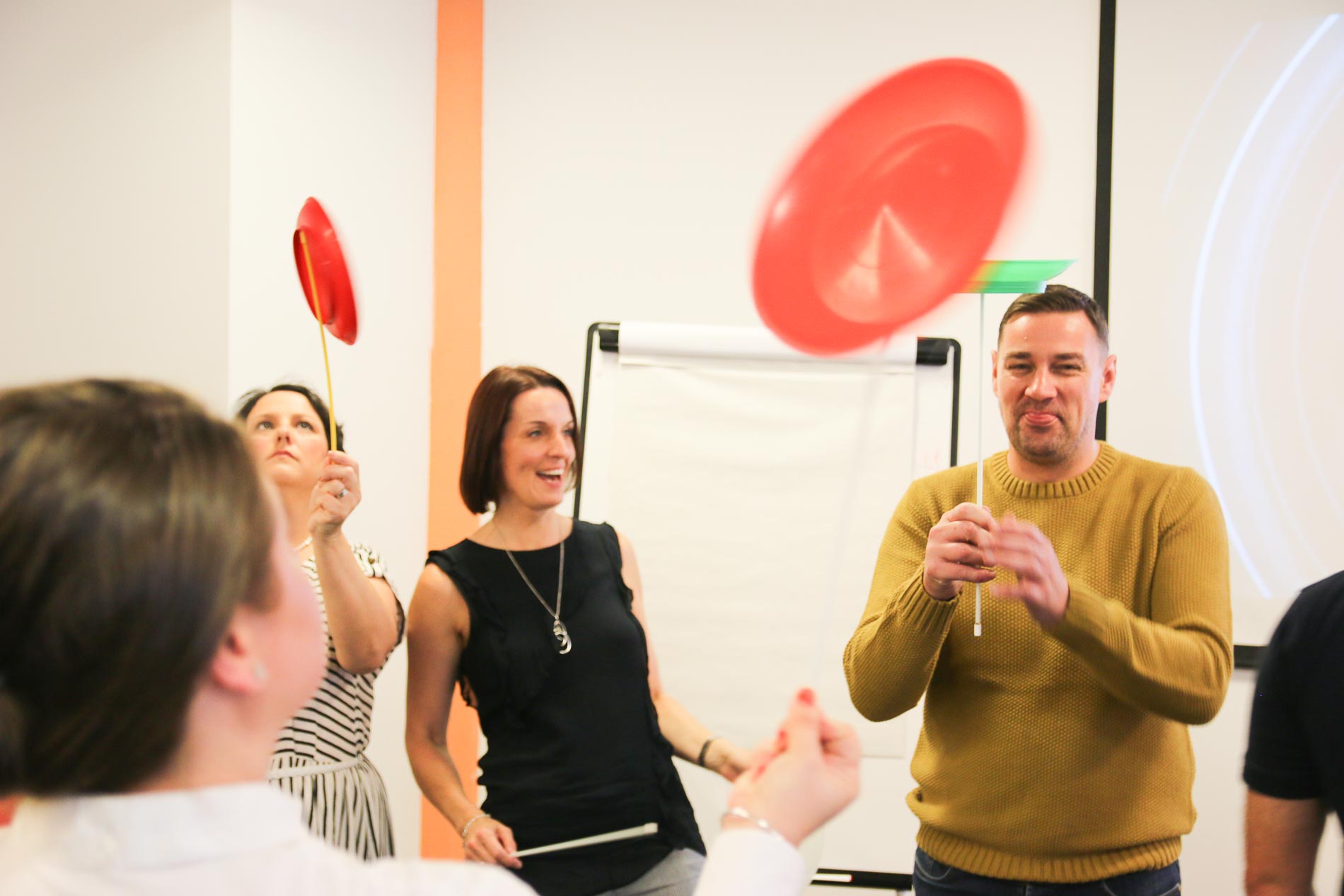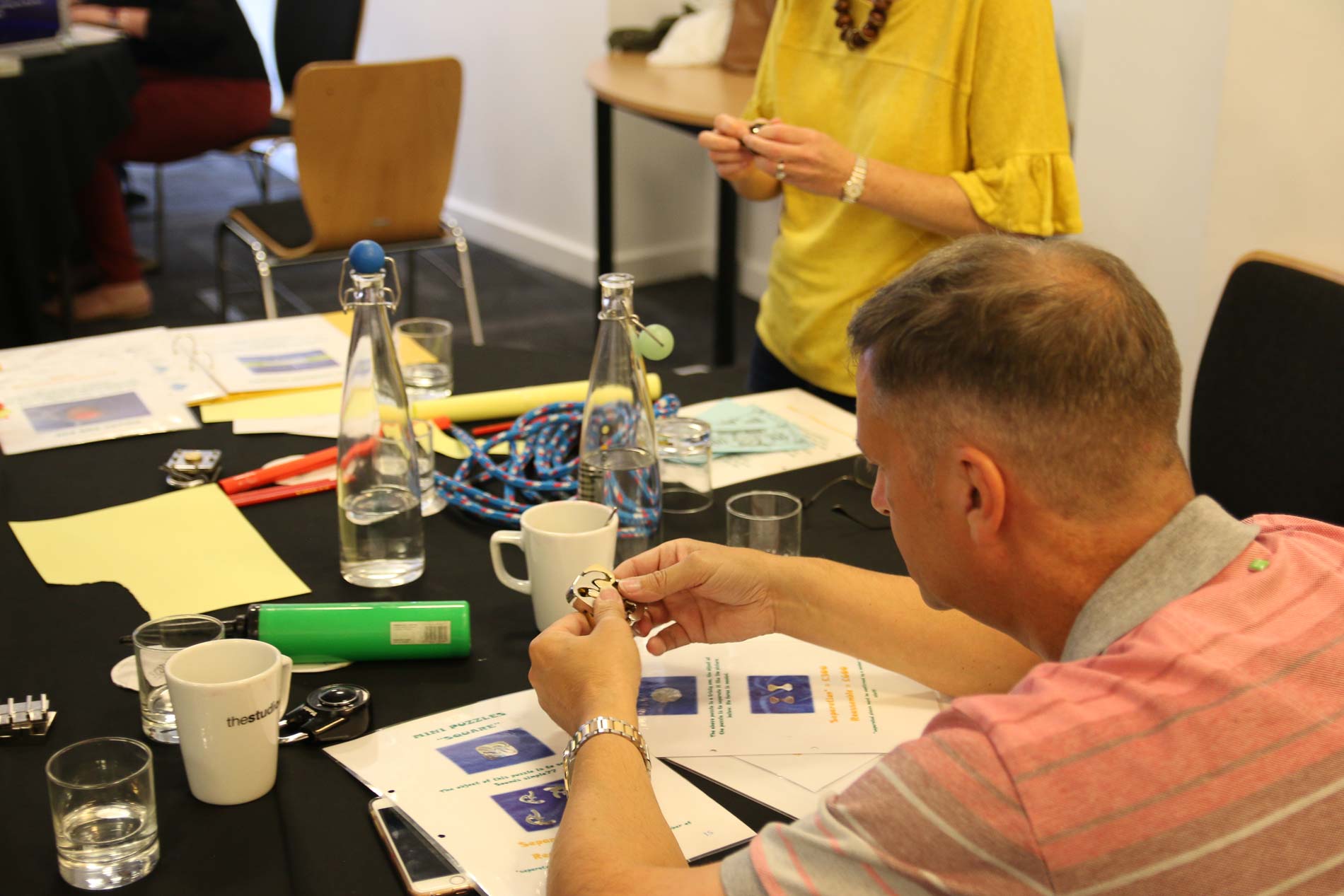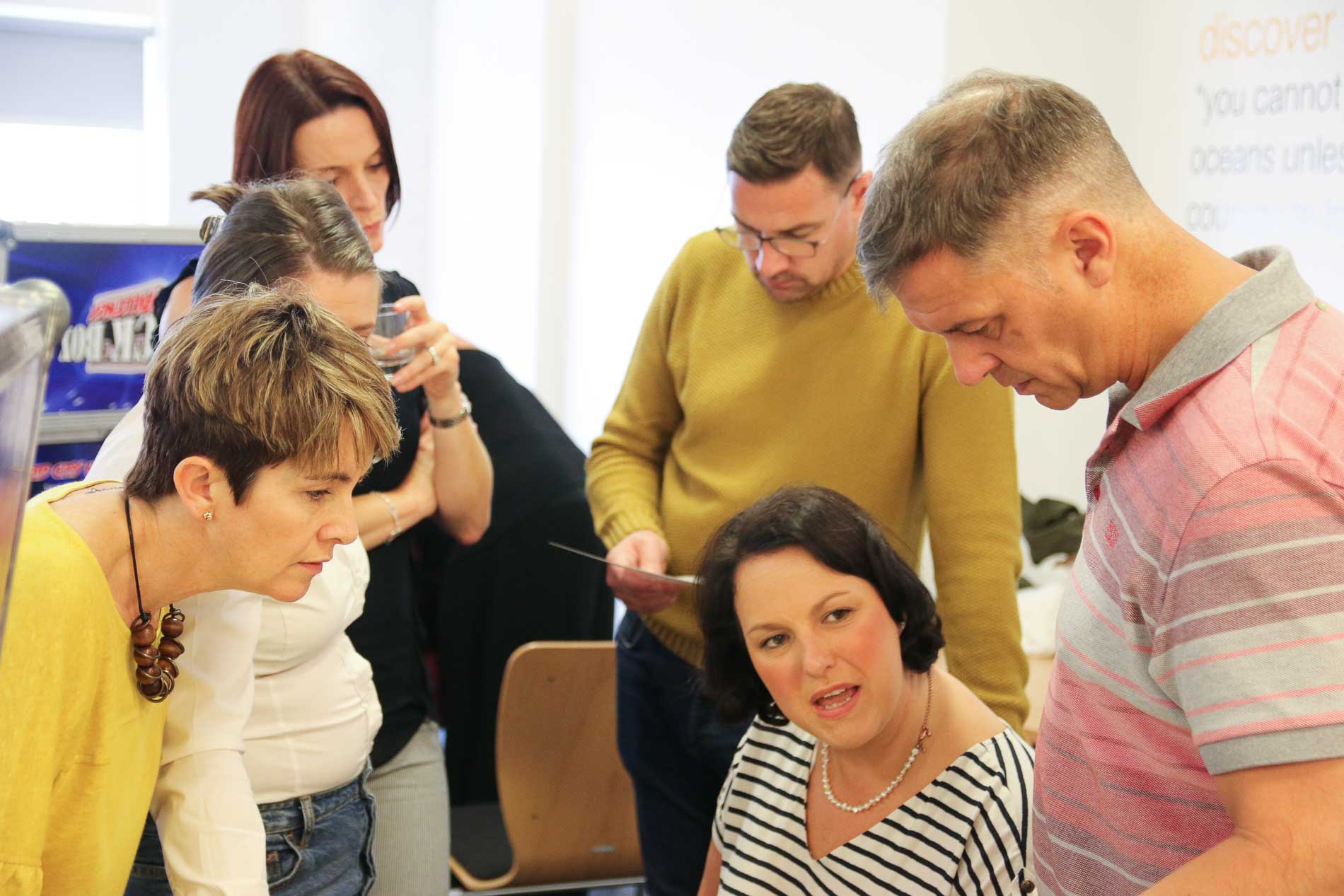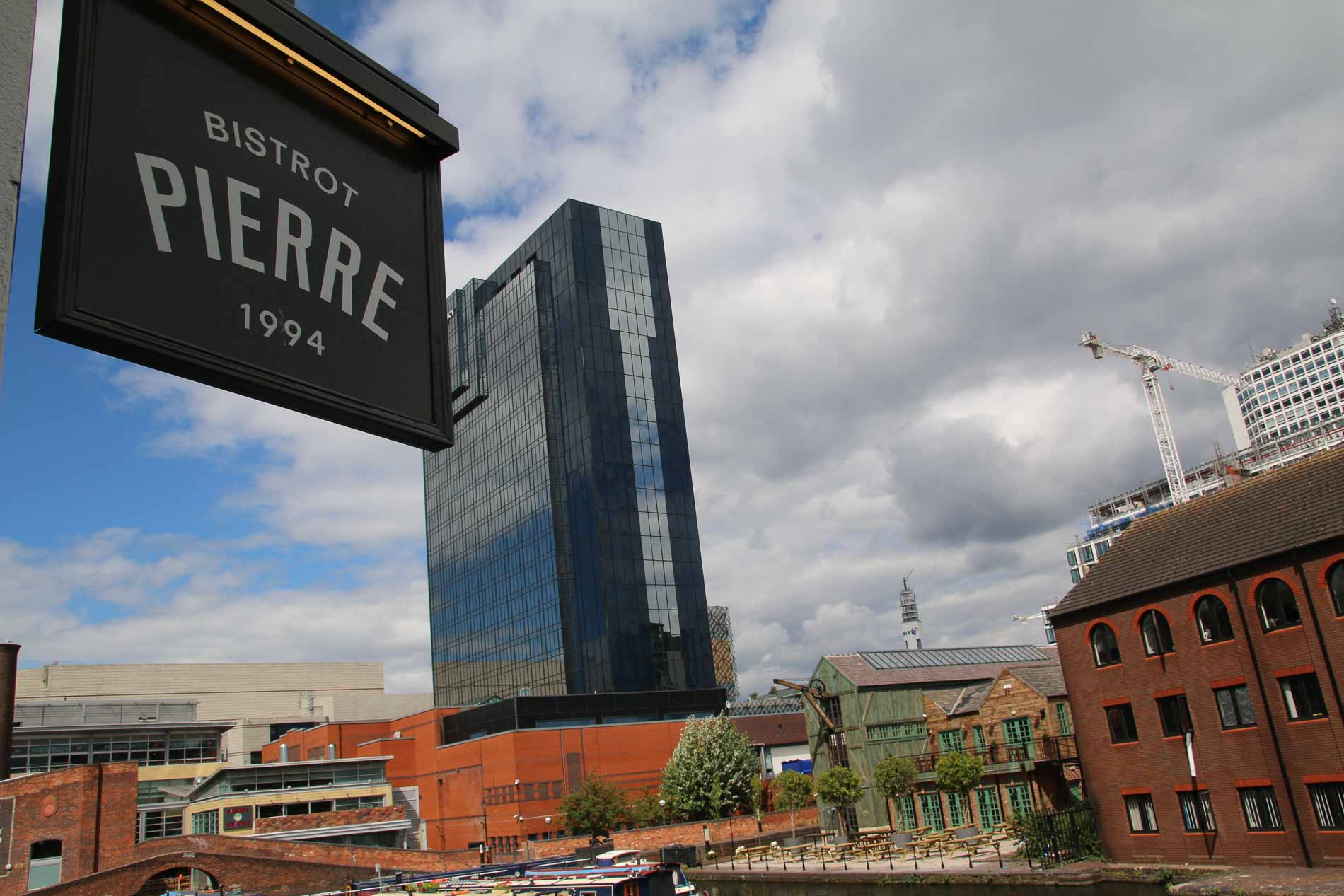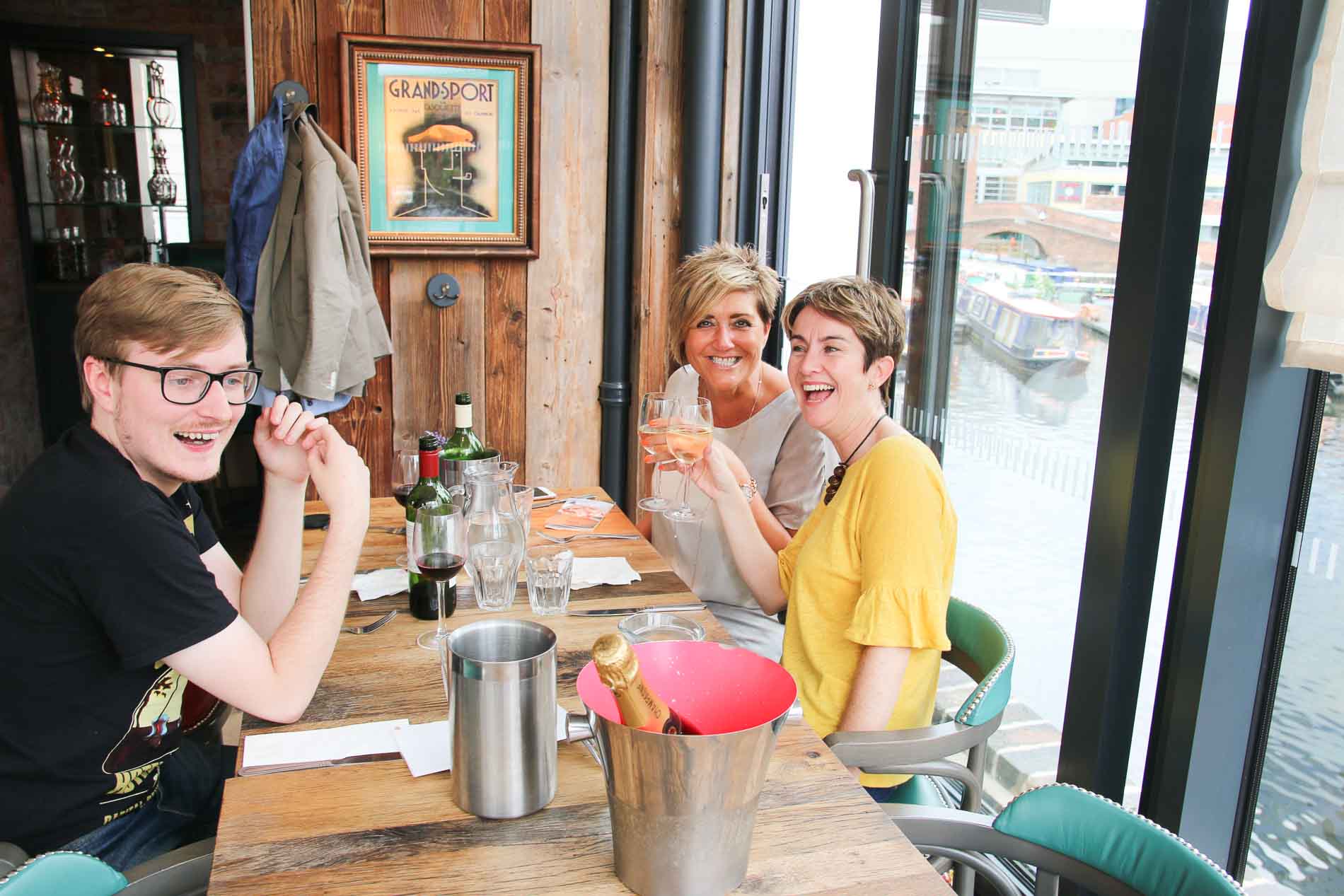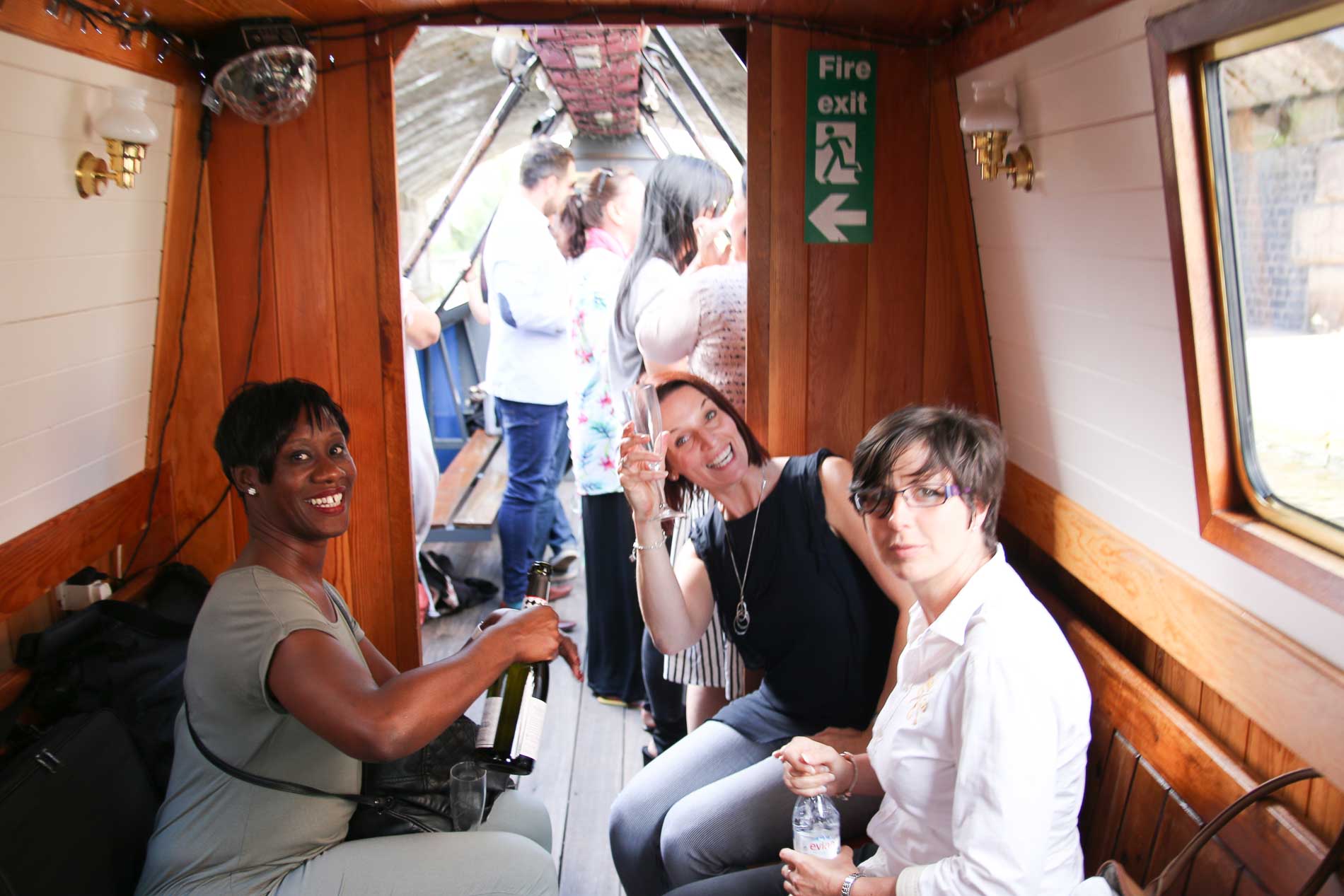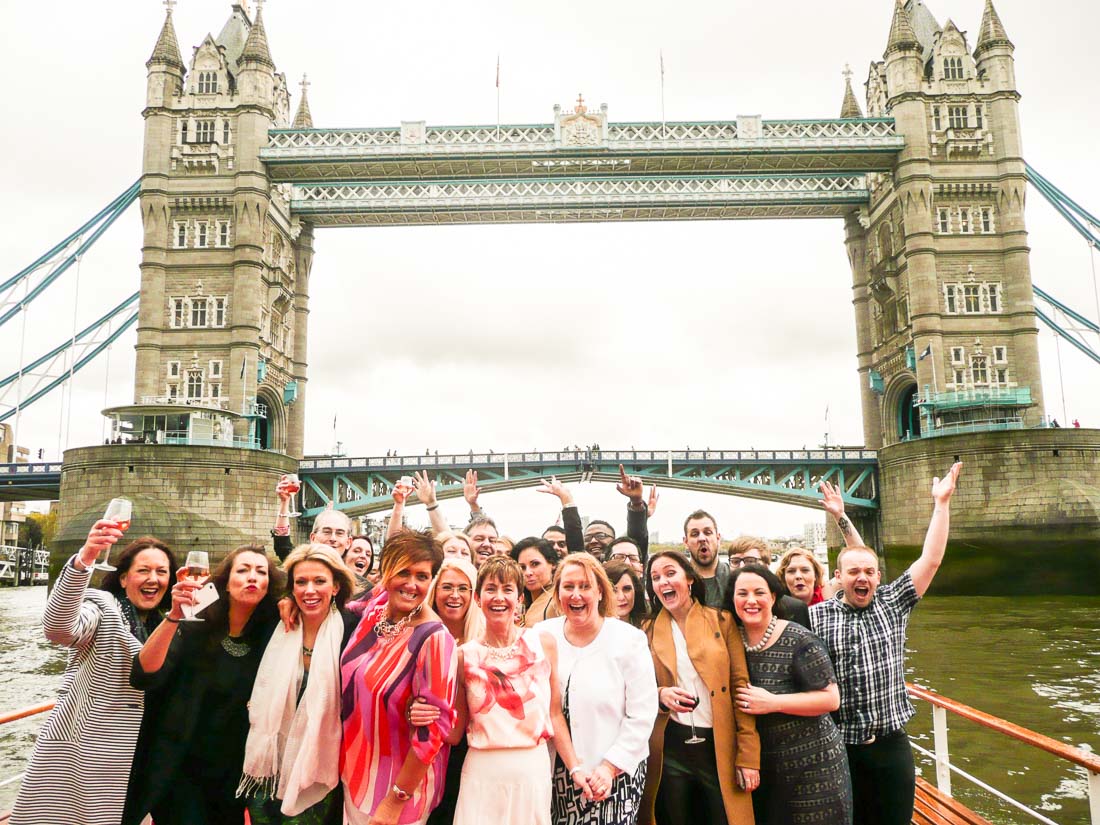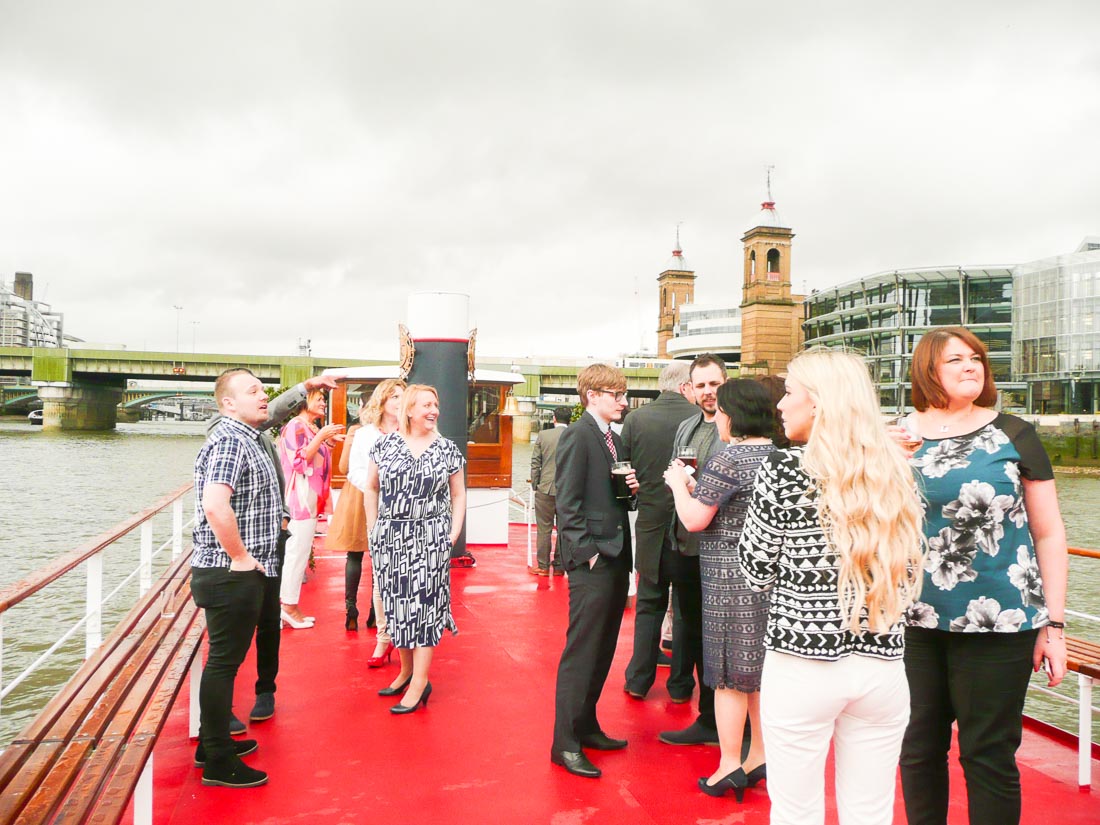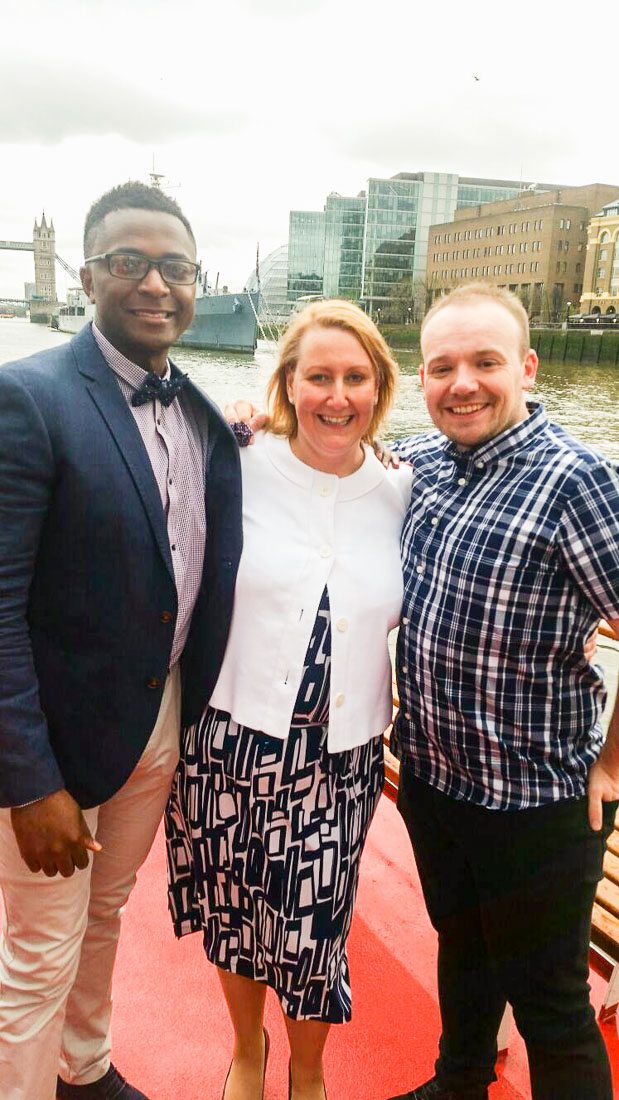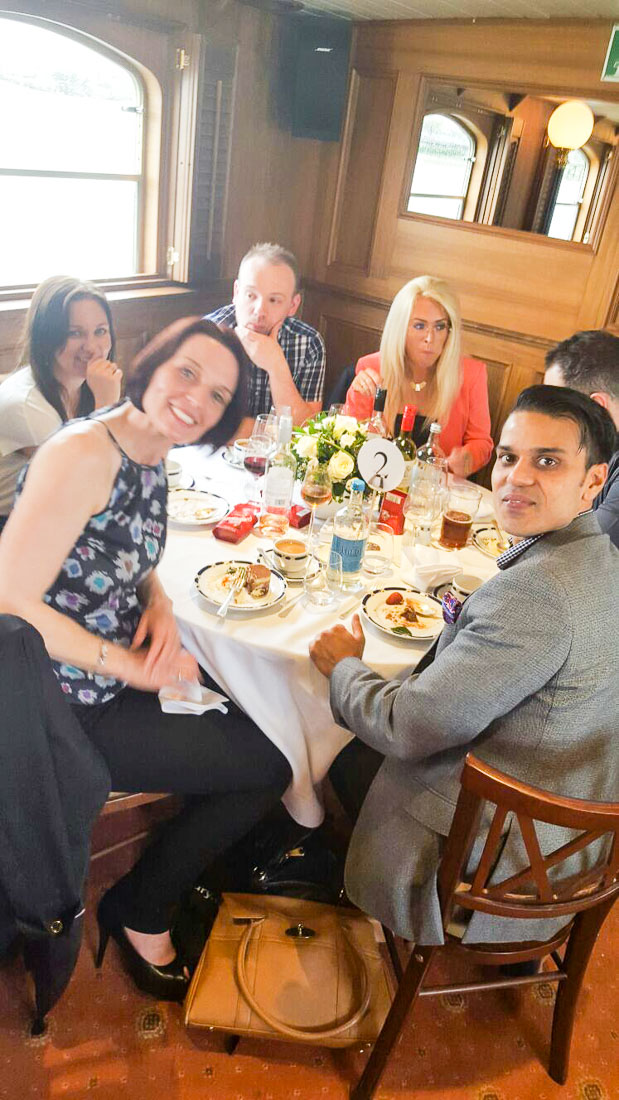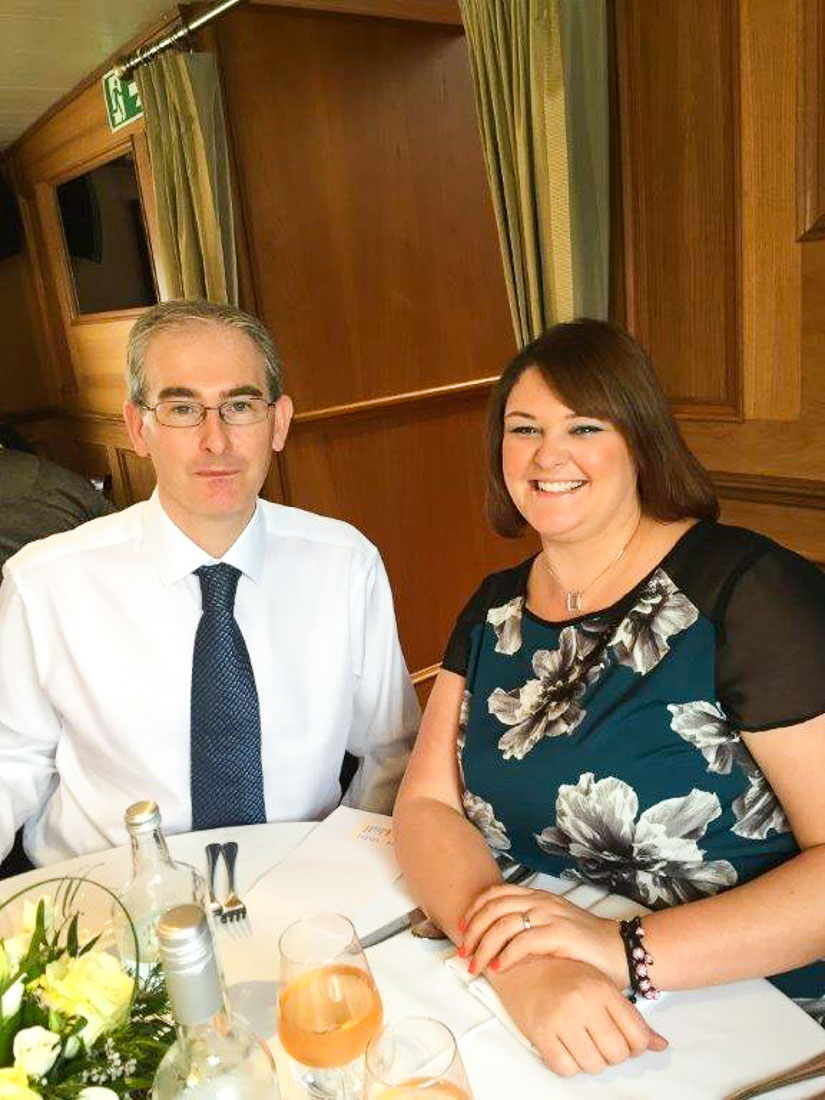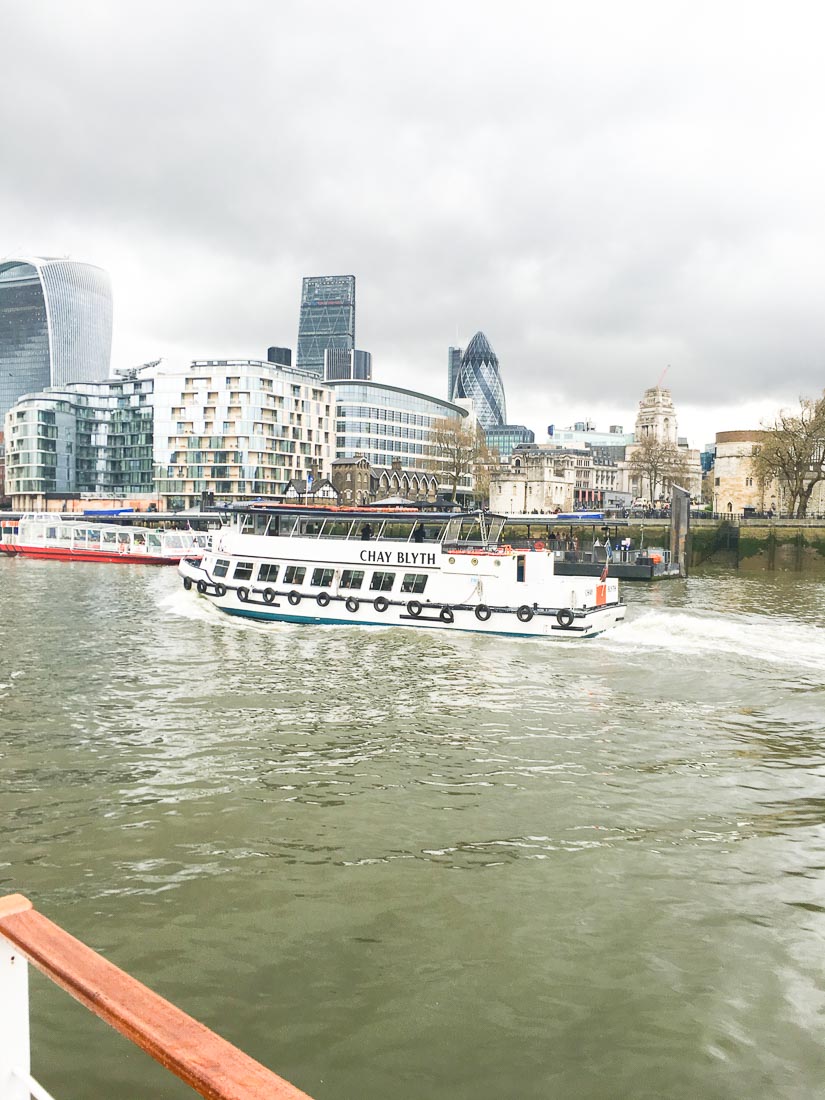5 Skills You NEED to be a Modern Marketer
The marketing landscape is always evolving as new tools and technologies constantly alter the way in which every marketer works. A career in marketing may refer to various jobs as the industry is laced with several different roles, but generally speaking, marketing refers to the management of relationships between consumers and a business. This often involves the process of showing potential consumers why they should use a company’s product or services.
Prestige Recruitment Group understand the importance of a great marketer, so we’ve compiled a list of the top five skills you NEED to be a modern marketer:
1) Communication Skills
Marketing is a form of professional communication, as you need to communicate the benefits and advantages of your business to potential consumers and existing customers. This may come in the form of explicit conversation, such as responding to customers over social media and replying to emails, but it may also come in the form of indirect, metaphoric advertisements. You might also need to create content for blogs or run e-mail campaigns.
Inside the company, communication skills are also vital as most marketing teams consist of different people with unique creative ideas. It is therefore important that you are able to communicate effectively to management and other members of the team to get your ideas across.
Regardless of the specifics of your job role, linguistic ability is vital for any marketing career and so you should ensure that you have exceptional communication skills.
2) Technological Skills
Over the years, marketing has become more digitally focused, especially with the growth and development of the Internet and so it is important that you have a thorough understanding of technology. You will be expected to use project management software, CRM’s and other creative programmes such as Photoshop and Illustrator. Therefore, it is vital that you get to grips with entering the digital workspace, as well as the physical workplace. You can learn more about this here.
3) Creativity Skills
Closely linked to our previous point, it is vital that you also have creative skills. When you enter the digital workspace and use programs such as Photoshop and Illustrator, you must have a creative eye and be able to tell what looks good, and what works. Everything you create must be aesthetically pleasing, professional and to the highest standard so make sure you develop your creative skills when you can.
As well as this, if you are working in marketing it is vital that you come up with innovative and exciting ideas so that you can engage with potential consumers and customers – being creative and thinking outside the box is crucial.
5) Analytical Skills
As technology and society develop, marketing requires a lot of research and analytics in order to determine what the audience wants. Part of marketing relies heavily on carefully crafted strategies that may be altered, as campaigns may have to change course based on the analytical information received. There are tonnes of free tools that can measure the success of campaigns and it is, therefore, vital that you can use analytical figures to make changes accordingly!
4) Enthusiasm to Learn
The marketing industry revolves around constantly changing trends and ideas. Because of this, it is vital that marketers are developing their skills and knowledge in order to stay on top of their game, which is why so many marketing qualifications have expiry dates! The sheer scale in which society, technology and trends develop due to tools like the Internet means that marketers have to learn faster than ever.
Marketing can be a very rewarding career, especially as it has quantifiable results. When working in marketing, you can really promote change and transform your company’s sales figures and engagement through interaction. It is also good for individuals who are eager to constantly develop their knowledge. If you fancy it and think you could work in marketing, get in touch with us! We recruit for a variety of marketing roles from digital marketing assistants to marketing managers!
A Day In The Life of an Accounts Assistant
What’s it like to be an Accounts Assistant at Prestige Recruitment Group?
We caught up with Joshua Toye, who is our apprentice accounts assistant based in our head office in Birmingham! Here’s what his role involves:
‘My experience so far of being an apprentice accounts assistant is that its quite a big role, as the job I do gets followed with college lessons for my course. As well as this, I am also trained by experienced managers and members of staff within the office to further my knowledge of the jobs that I do. I work four days in the Birmingham office, and one day a week at college, which means I am constantly learning! It’s very exciting.
'The jobs that I do are spread out during the week, which means my days are quite balanced. Some of the jobs I do in the office include printing off timesheets that need to go in the weekly bible, entering every temp’s hours and pay onto payroll and consistently checking that everything is correct and up to date. Other elements within my role include paying all the temps, sending payslips and preparing invoices to be sent while making sure that all information is correct.
'In between jobs, I help colleagues with anything they need, whether it’s replying to emails or scanning and sending important information to them.
I’ve only worked at Prestige Recruitment Group since January, but it’s a great experience to see the working world, and it’s a company I really enjoy being a part of. I can’t wait to continue learning over the next year.'
A Fact About Josh: At only 17, Josh is the youngest member of the Prestige Family.
If you're interested in joining the Prestige family, get in touch! If you want to know more about Josh, check his Meet the Team page here.
A Day In The Life of a Recruitment Coordinator
What’s it like to be a Recruitment Coordinator at Prestige Recruitment Group?
We caught up with Jessica Martin, who is one of our recruitment coordinators based in Wilmslow. Here’s what her role involves:
‘I’m supposed to walk to work every morning, but most days I end up in a taxi. When I arrive at work, the first thing on my mind is a cup of coffee to wake myself up for the day ahead!
'From there, I log on and work my way through the emails I need to respond to. I help my team out as much as I can whether it’s registering candidates, gaining references, CV searching, updating candidate profiles, placing candidates in vacancies, arranging interviews or prepping candidates for interviews.
'Each day is different for me, on a Monday I will be processing payroll, making sure all candidates have their timesheets in before the 11am deadline, confirming holiday pay, and ensuring I have collected everyone’s p45’s and timesheets. Towards the end of the day, I work on my blog, which I post on LinkedIn on a weekly basis. I will also be working on general registrations for the week ahead of me.
'Most of the other days I spend resourcing for Vicky and Sarah, or filling vacancies for the temp desk. I love the thrill of knowing I have placed a candidate into a role that they have always wanted or that they never imagined working for. I also enjoy working on jobs for Sarah, even though I am only helping with searching for CV’s and finding candidates for the relevant roles that they are recruiting for at that time.
'The roles that Sarah work on are jobs I have never worked on before or even heard of, so it’s great to be able to support and learn at the same time. I also make sure I save the roles into my folders created, so that everything is organised!
'Prestige Recruitment Group brought me in to support Vicky alongside her temp’s desk, as I come from a temp’s background. I have had a lot of training with the Prestige Training Academy, and I had a lot to learn about Prestige and the way they work as a company. They have provided me with all I ever needed – support, guidance and a confidence boost.
'Even though I come across as a very chatty upbeat person, I still have my insecurities. One thing I struggled with overcoming was the fear of people hearing me on the phone as I work so close to the rest of my colleagues in the office. However, I soon realised that everyone is so busy that they are focusing on their own jobs, and I have nothing to be embarrassed about.
'The journey I have been on so far has been amazing, and I am so happy about working with Prestige Recruitment Group.
Jessica's Secret Fact: 'I am the DJ of the office and I keep the whole office entertained!'
If this sounds like something you’d love to be doing, and you fancy joining the team, get in touch. If you want to know more about Jess, check out her Meet the Team page here.
Ten Top Tips for Perfecting Your Email Etiquette!
Regardless of the job you do, chances are, you’re going to have to send emails. In the age of the Internet, you are probably so used to hitting reply, writing something quickly and then sending it straight away. However, the way you send and write emails can seriously affect your professional reputation and that’s why it is vital that you have completely nailed your email etiquette. Perfecting email etiquette is something we teach our new recruits in our Training Academy, and this is why Prestige Recruitment Group have created Ten Top Tips for Perfecting Your Email Etiquette!
1) Proofread
Although this might sound like common sense, it is immensely important. We get it, everyone is busy and that’s why you might pen an email and hit send quickly, without much thought. However, you really should take time to ensure that there are no problems or issues with your email before you send it. Check for spelling errors, grammatical problems and that the email flows efficiently and effectively. The little errors can seriously affect your professional reputation, especially if you’re sending an important email to a really important person. So, take a few minutes to check everything before you hit send.
2) Avoid Misdirected Emails
Although you have proofread your email, and you’re sure that there’s no mistakes or issues in the body of the message - you should also check whom you’re actually sending the email to. If there are people within your company with the same name, it might be easy to brush over the recipient, thinking you’ve sent it to the correct person. Imagine sending a really confidential email to the wrong person! Therefore, make sure you double-check that you’re actually sending the email to the right person before you send it.
3) Avoid ‘Reply All’
It is not uncommon that within the workplace, management will send emails to every workplace member. It is also not uncommon that some people will hit ‘Reply All’ and so your email will be flooded with emails that aren’t relevant or important to you. Avoid being that person. Linking back to avoiding misdirected emails, simply reply to the person who has sent the email unless it’s absolutely necessary that everyone within the email thread receives your response.
4) Create the Perfect Subject Line
So, you’ve drafted your body of the email, and you’re completely sure it’s going to the right person. Now it’s time to pen the subject line. Avoid writing something colloquial or informal like ‘Hi’ (this happens more often than you’d think!) and write something relevant to the email, which will make it easy for the recipient to find the email again if they need it in the future.
5) Don’t Mark it as Urgent
Don’t get into the habit of marking every email you send as ‘Urgent’ especially if it’s not! If you continuously do this, people won’t think your emails are actually ever important. This can seriously affect situations when you actually do send an important email! Therefore, avoid sending ‘Urgent’ emails until you actually need an urgent response.
6) Avoid Short Emails
If someone is sending you some information over, you don’t always need to email them to say thanks. (Especially if this person works in your office!) If you do work within a close proximity of the person who has emailed you, just say thank you when you see them. Unnecessary emails will just flood your inbox. In order to avoid emails with just one-line responses, don’t be afraid to write ‘No Need for Response’ within your email!
7) Avoid Long Emails
When you send an email, people will tend to read only the first few lines properly, and then they’ll skim over the rest of the information. Therefore, there is actually no need for you to be sending long emails with tonnes of unnecessary information. If you can, summarise the information within the first few lines of the email. If you become known for sending long, unnecessary emails – no one is going to care about the important information you’re sending.
8) Avoid Late Night Emails
Although tempting, you should avoid responding to emails late at night before you go to bed. When you’re tired, any email you send is probably going to have a mistake in it. If it’s a really important email you need to send - it’s extra important that you don’t make any mistakes. The best thing you can do is draft an email and wait until the following morning to send it. That way you can read it over, check the information and ensure it is going to the right person while you’re fresh-faced, and ready for the day ahead.
9) Avoid Emotional Emailing
If you get an email that comes across as rude, or you receive information that you don’t want to hear, don’t send an email back straight away. Write a draft, and then come back to it when you’ve calmed down. When you’re emotional, you may want to send an email back immediately – but this will only lead to further upset down the road. Therefore, take some time and calm down in order to collect your thoughts.
10) Don’t be Overfamiliar
Unless you personally know the person you are emailing, remain professional at all times. Avoid using nicknames, emojis or sending kisses to people. Relationships need to be built and developed before any level of personal interaction can happen. Therefore, remember to stay professional!
There you go! Now you know how to write perfect emails and can build up your professional reputation. Be sure to check out our other blogs here.
The Prestige Family Take Part In The ‘Colours for Peace’ Fundraising Day
If you've seen our previous article, you will know that yesterday was the 25th Anniversary of the Warrington Bombings! To commemorate this, Prestige Recruitment Group supported the Tim Parry Johnathan Ball Peace Foundation and took part in their ‘Colours for Peace’ Fundraising Day. Below, we've posted a couple of images from our Warrington and Birmingham offices where everyone is wearing their colours!
Vicky, Angela, Janette and Francesca from our Warrington Office.
Annejulie, Josh, Jenny, Shay, Jessica, Tim and Emma from our Birmingham Office.
How Else Can You Help?
The Tim Parry Johnathan Ball Foundation relies heavily on the generosity of public fundraising so that they can continue supporting so many victims of terrorism with their Survivors Assistance Network.
Donations, large or small, monthly, annually or one-off can help the Foundation plan for their future. Please visit their website and donate!
UK Ports Invest £1.7 Billion in Infrastructure
The most recent research by the infrastructure advisory firm Moffatt & Nichol shows that UK Ports and Terminals will have a staggering £1.7 billion of port infrastructure investment. The research, which was developed using publicly sourced data from the last year, captures substantial schemes from across the United Kingdom, and illustrates how ports are investing in new facilities to promote market growth.
British Ports Association’s Policy Manager and BPA Port Futures Program Coordinator, Mark Simmonds says:
‘Ports are doing their bit but we rely on government to ensure that road and rail connections from the port gate are fit for purpose. The terrestrial and marine planning and consenting process is also cumbersome and costly and often holds back or even prevents some sustainable port development. We hope that this report helps government to develop an accurate picture of the investment that industry is making when developing its policies and making its own investment decisions regarding infrastructure.
‘This research demonstrates that UK ports are investing in new infrastructure to keep goods and people moving as efficiently as possible.
‘The UK ports industry operates in a competitive and commercial environment, independently of government, so this significant investment is at no cost to the taxpayer.’
Joseph Collins of Moffatt & Nichol carried out the research. When asked about the report, he said:
‘This report focuses on developments which have been announced in the press in the last 12 months and provides a snapshot of shows the potential scale of UK. ports investment in infrastructure.
Despite there being no guarantee that all of these projects will be fully realised, with greater engagement between key stakeholders such as government, the ports, investors and statutory bodies, the realisation of these developments has the best chance of success.
It’s also likely that there are a many more privately financed infrastructure projects planned or underway all around the country, which haven’t been discussed in public yet. Together, these projects help ensure that the 95 percent of UK trade that moves through our ports continues to do so as efficiently as possible.’
The British Ports Association will be writing to the Infrastructure Projects Authority to ensure that officials have a clear picture of industry investment, highlighting significant projects. There are over a dozen significant port projects listed in the research and it demonstrates great optimism in infrastructure development and growth in the port sector, says BPA. The British Ports Association will also be working with its port members and will be keeping the list of investment up to date as new projects are announced.
The report can be found here.
Our Bespoke Training Academy
Starting this year, Prestige Recruitment Group and our sister brand Zoot Recruit have been running a bespoke Training Academy. With our HR, Training and Systems Manager Sarah Kay being the first point of call within the academy, we caught up with her to ask her about this exciting new venture.
Sarah Kay - Our HR, Training and Systems Manager
‘The Training Academy is such an exciting enterprise and I can’t wait to recruit new employees to join us. As we continue to develop as a company, we are recruiting to match our growth and so we are running quarterly training programs across our offices.
Our latest training is going to be running in the North, where we will be hiring, training and mentoring some new employees. It’s such a great opportunity for someone to come in as a recruitment coordinator and develop into a recruitment consultant.
The best thing about our Training Academy is that we understand the needs of an individual, and so using a thoroughly considered approach; all of our training is tailored to the employee’s individual needs.
The training itself is constructed of seven different phases, which are thorough in ensuring every employee develops their knowledge and understanding of our company and the recruitment industry. The seven phases we have included are induction and orientation, candidate control and engagement, client interview control, how to take a vacancy, vacancy control, business development and time management. Although we follow a structure, the package we offer is very bespoke to the individual as we allow each person to develop their knowledge in the way that best suits them. We really do understand that different methods will work for different people.
Firstly, the training starts in the ‘classroom’ as such where we use a variety of interactive methods to teach our employees everything that they need to know. By week three, we aim to have every person submerged into the company, using what they’ve learnt so far in action.
Candidate-driven at first, we want every employee to be communicating with our candidates to help them find jobs across a variety of industries. Through this, employees are rewarded with the knowledge that they are changing lives within just a few weeks of starting their career with us. These recruitment coordinator roles will then natural develop into sales, which is a vital element to the recruitment industry. We are excited about this – and we hope you are too! Although it may be scary for some within the Training Academy, all of their managers will offer the upmost care with me being here to support every single one of your needs.
This flexible training system and modules allows us to take on employees who have had no previous recruitment experience but are looking to achieve an amazing career within recruitment - all they need is the hunger to achieve, we will do the rest! Equally, when we recruit established Consultants, Managers and Directors, they have the comfort of knowing we will invest in the people who are working for them.
Our Training Academy really takes the strain out of training. We know that high level; high calibre achievers don't need generalised training. In fact, we love to learn from their experiences, as this allows us to expand our training with their knowledge. But, we are always there for them as well. If they ask for high-level bespoke training or help, we support them with the tools and training they need.
The whole ideology behind the Training Academy is to improve all business practices, which means the training doesn’t stop after you have become a fully-fledged member of staff. Workshop training will continue to run on going support and mentoring while understanding the importance of the individual in all aspects of the recruitment sector. By doing this, we are ensuring that each employee is knowledgeable in the latest trends and facts so that all of our team thoroughly understand the recruitment industry.
We want to give people opportunities. We want to help nurture people into their recruitment career and further educate those who have been in the industry a long time. The Training Academy is here to find the right candidates and mentor them.’
Join Prestige in Taking Part in the ‘Colours for Peace’ Fundraising Day
To commemorate the 25th Anniversary of the Warrington Bombing, Prestige Recruitment Group are joining the Tim Parry Johnathan Ball Peace Foundation and taking part in their ‘Colours for Peace’ Fundraising Day – and we’d love it if you could too!
On Tuesday 20th March 2018, we kindly asks clients, candidates and colleagues to join us in a ‘dress down’ fundraising day, where people can wear the Peace Foundation colours: blue, green and/or white. A small donation of £1.00 will go towards supporting victims of terrorism and their families through the Foundation’s Survivors Assistance Network.
What is The Tim Parry Johnathan Ball Peace Foundation?
25 years ago on March 20th 1993, the IRA exploded two bombs in a busy shopping street in the town of Warrington. The shrapnel killed three-year-old Johnathan Ball and five days later, twelve-year-old Tim Parry also died. 54 other people were also seriously injured. After the bombing, Tim’s parents Colin and Wendy Parry wanted to ensure that nobody would ever experience what they had gone through and so they formed the Tim Parry and Johnathan Ball Foundation For Peace.
The Foundation is a charity that works nationally and internationally for peace and non-violent conflict resolution. They support those who have been affected by terrorism and violent conflict, covering prevention, resolution and response. The Foundation also supports the police, ambulance and fire services, many of who are seriously affected by what they have witnessed. A large and vital part of what they do comes in the form of the Survivors Assistance Network, which is vital to families and individuals all over the world.
What is the Foundation’s Survivors Assistance Network?
The Foundation’s Survivors Assistance Network (SAN) provides free practical and emotional support to people who have been affected by any terrorist incident. The most recent annual statistics revealed that there were 9,707 attacks worldwide, and it is estimated that one attack happens every 55 minutes. There is no denying that the world can be violent, and supporting the individuals affected is a key element to the Tim Parry Johnathan Ball Peace Foundation.
The Foundation is currently supporting 800 people from the Manchester attack alone and so it is vital that we all come together for Peace to help the Foundation raise as much money as they possibly can.
Support the Foundation with Us
Having offices in Warrington, this charity is something that resonates with extreme importance to our whole company. All of our team members will be donating and dressing down on the 20th March to show our support for our Warrington offices and wearing blue, green and/or white!
How Else Can We Help?
As a charity, the Foundation relies heavily on the generosity of the public fundraising on their behalf so that they can continue to deliver their programmes to young people and continue the Survivors Assistance Network that supports so many victims of terrorism.
Donations, large or small, monthly, annually, or one-off can help the Foundation to plan for the future. Your donation will make a real difference to the Foundation’s vital work supporting victims of terrorism, armed forces veterans, and vulnerable young people.
25 Years
Although this year marks 25 years since a very upsetting event, a lot of good has come from it. The support that the Tim Parry Johnathan Ball Peace Foundation offers is amazing, and the Foundation really helps people who need support.
Similar effects to the Warrington bombing happen with every terror attack and so it is fundamental that we support the Tim Parry Johnathan Ball Peace Foundation and the Survivors Assistance Network. Prestige Recruitment Group offer our never-ending support and urge other businesses to do the same. We can’t wait to see you wearing your blue, green and white so be sure to send us any pictures from your ‘Colours for Peace’ Event!
UPDATE:
Check out our pictures from the Colours for Peace Fundraising Day here.
Is Every Day becoming ‘Dress-Down Friday'?
According to recent research carried out by Travelodge, just 50% of workplaces have a dress code policy in place, and a massive 76% of these workplaces say their dress code is actually casual dress.
Travelodge found that comfort dressing triumphed over power dressing as 69% of workers reported that dressing casually for work makes them feel more comfortable and 22% reported that they could express their personality through casual dress.
6 in 10 people said that they believed a more laid back dress code enables a more relaxed office environment and that they felt colleagues were friendlier towards each other.
In fact, 43% of workers said that the business suit no longer had a place in the office and if they saw a colleague wearing a suit they would stand out.
So why is it happening?
Culture Change
Professor Karen Pine, Psychologist at Hertfordshire University said the changes to dress codes reflect under changes to business culture.
‘The biggest changes have included decline of hierarchy, the boss being less of an authority figure and more of a coach, all colleagues being called by their first name and the biggest change, the transition from a formal dress code to a casual one.
Having a dress down Friday, every day enables workers to the independent and showcase their personality & attributes by how they dress rather than the position they hold. This leads to stronger bonds between co-workers to remove barriers, enabling everyone to get on with their jobs.’
What causes culture change?
Technology
With the development of young, hip and exciting technology – businesses may be trying to mimic it and so develop the culture and aesthetic that comes with new technology.
Millennial and Generation X
Some believe the reason for a more relaxed dress code within businesses is due to handing over the economies reigns to the millennial generation. Millennial’ or ‘Generation X’ have relaxed social standards when compared to previous generations and so businesses are changing as their employees do.
What are the advantages and disadvantages of casual dress in the office?
Advantages
Improves morale – by allowing room for freedom and expression, many employees are much happier.
Increases business attractiveness – by keeping your employees happy within the workplace, you are likely to build your business reputation which is a great tool during recruitment as it attracts candidates to your business.
Improved effectiveness – some studies have shown that employees feel happier and so perform better in the workplace.
Disadvantages
Some companies have actually noted a decline in employee performance. They believe that by allowing casual dress, employees act more relaxed and so are less likely to meet deadlines.
Clothes may reflect badly on the firm – with client facing businesses, it is important to ensure there is still some level of professionalism within the workplace as many clients may prefer business dress at all times.
Confusion about what is appropriate – Difficulty in establishing a clear policy around casual attire can damage employee/employer relationships.
So what do you think?
Many businesses are run differently, and just because something works for your company may not mean it works for everybody else. Does your company embody a casual dress code every day – or is it just on Fridays? Or do you not get casual dress? Let us know what you think works best!
5 Skills You NEED to be a Great Administration Assistant
As an administrative assistant, you perform a variety of clerical duties and tasks to support your organisation every single day. Everyone knows that admin staff must have top notch computer literacy skills, as a huge duty within the role includes creating spread sheets and using word processing software – but here are five other skills which are equally as important to be a great administrative assistant:
1) Communication Skills
As an administrative assistant, you will interact with a wide range of people both online and in person. Therefore, your communication skills are vital, as you must always come across as both friendly and professional at all times. Being a good communicator, you should also be a good listener. You must listen carefully to every person you talk to and ensure you remember correct, accurate information. This also links into written communication skills – your spelling, grammar and sentence structure are integral aspects of online correspondence. Therefore, in order to be a great administration assistant, you should be able to communicate clearly, accurately and professionally across all mediums – whether that’s speaking on the phone, sending an email or filling in written forms.
2) Organisational Skills
When undertaking multiple tasks with similar deadlines, it is easy to forget things. Admin staff can’t do this, as they must stay on top of everything at all times. You must have exceptional organisational skills in order to keep schedules straight and everything running smoothly around the office. You should know how to keep everything organised, whether that’s managing a filling system or coordinating paperwork flow throughout the office.
3) Attention to Detail
To be a great administrative assistant, you have no room for mistakes. When filling in forms and paperwork, you must ensure everything is correct at all times – as a mistake from you could affect the business. You need exceptional attention to detail to ensure the right information, materials and data is gathered for co-workers. A great administration assistant can keep on top of all their responsibilities while ensuring that detail does not slip through the cracks.
4) Self-Motivation
As admin staff, you are unlikely to have management working directly above you. This means you will have to be self-motivated in order to ensure you get things done on time and to the highest standard. If you do start to lose motivation, the business will immediately realise as it becomes clear you haven’t completed your tasks.
5) Problem-Solving Skills & Intuition
Great administrative staff must have extraordinary problem-solving skills. You will have to use these skills if clients cancel meetings or if appointments need juggling. Without a direct manager, it is extremely unlikely that you will be told what to do and when, and so to be a great administrative assistant, you need to use your intuition at all times to prioritise tasks and get things done on time.
Although challenging at times, being an administrative assistant is a thoroughly rewarding career choice, especially if you like to stay busy. You have a lot of responsibility and multiple tasks to do simultaneously but a business couldn't last without it's admin staff! If you are currently looking for work or need to recruit for an administrative assistant, get in touch.
The Top Fashion Events to Look Out For in 2018
January marks the start of the New Year, and with January events like London Textile Fair, Haute Couture and Fashion Showcase & Networking Night, it’s clear that 2018 is going to be a massive year for the fashion industry. We’ve listed the key events to look out for over the next year, so keep your eyes peeled and let us know which events you love!
February 2018
New York Fashion Week – Fall 2018
When? 8th February – 16th February.
Where? Mainly Skylight Clarkson Square and Industria in New York City.
London Fashion Week– Fall 2018
When? 16th February – 20th February.
Where? Mainly Brewer Street Car Park, Brewer Street, London W1F 0LA and Somerset House, London.
Fashion’s Finest LFW Show
When? 17th February.
Where? Grand Connaught Rooms 671-65 Queen’s Street Holborn, London WC2B 5DA.
Milan Fashion Week – Fall 2018
When? 21st February – 27th February.
Where? Various locations in Milan.
London Fashion Week Festival
When? 22nd-25th February.
Where? The Store Studios, 180 Strand, WC2R 1EA.
Paris Fashion Week– Fall 2018
When? 27th February – 6th March.
Where? All around Paris in different locations.
March 2018
StockXChange
When? 11th March – 12th March.
Where? ILEC Conference Centre, 47 Lillie Road, London, SW6 1UD.
Wearable Technology Show
When? 13th March – 14th March.
Where? Excel London, Royal Victoria, Dock, 1 Western Gateway London E16 1XL.
London Hat Week
When? 22nd March – 28th March.
Where? Various locations in London.
April 2018
Menswear Revolution: The Transformation of Contemporary Men’s Fashion
When? 5th April.
Where? Fashion and Textile Museum, 83 Bermondsey Street, London, SE1 3XF.
The Future of Textiles: Textile Art 2028
When? 19th April.
Where? Fashion and Textile Museum, 83 Bermondsey street, London SE1 3XF.
May 2018
Fashion and Textiles: A Designers Story
When? 3rd May.
Where? Fashion and Textile Museum, 83 Bermondsey Street, London, SE1 3XF.
Colleges Council Preview Day
When? 11th May.
Where? TBC.
IMATS
When? 19th May – 21st May.
Where? London Olympia, Hammersmith Road, Kensington, London, W14 8UX.
June 2018
London Fashion Week Mens
When? 8th June – 11th June.
Where? BFC Show Space, 180 The Strand, London WC2R 1EA.
The Beauty Exchange
When? 15th June.
Where? KPMG, 15 Canada Square, London, E14 5GL.
July 2018
The Fashion Exchange
When? 6th July 2018.
Where? KPMG, 15 Canada Square, London, E14 5GL.
September 2018
New York Fashion Week - Spring 2019
When? 6th September – 14th September.
Where? Mainly Skylight Clarkson Square and Industria in New York City.
Fashion Together
When? 11th – 18th September.
Where? 20 John Princes Street, London, W1G 0BJ.
London Fashion Week - Spring 2019
When? 14th September– 18th September.
Where? Mainly 180 Strand London WC2R 1EA, Somerset House and other locations within London.
Milan Fashion Week - Spring 2019
When? 19th September - 25th September.
Where? Various historic, open air and other venues in Milan.
Paris Fashion Week Spring - 2019
When? 25th September – 3rd October.
Where? In various galleries around Paris.
Ongoing Exhibitions
T-Shirt: Cult/Culture/Subversion
When? 9th February – 6th May 2018
Where? Fashion and Textile Museum, 83 Bermondsey Street, London SE1 3XF.
Fashioned From Nature
When? 21st April – 27th January 2019.
Where? Victoria & Albert Museum, Cromwell Road, London SW7 2RL.
Ona Kiely – A Life in Pattern
When? 25th May – 23rd September.
Where? Fashion and Textile Museum, 83 Bermondsey street, London SE1 3XF.
Frida Kahlo’s Wardrobe
When? 16th June – 4th November.
Where? Victoria & Albert Museum, Cromwell Road, London SW7 2RL.
Harper’s Bazaars – 150 years
When? 20th October – 21st January 2019.
Where? Fashion and Textile Museum, 83 Bermondsey Street, London SE1 3XF.
5 Skills You NEED to be an Efficient Office Manager
As an office manager, your knowledge of the office is top notch – you know who to call and when. Whether calculating payroll or hiring new employees, you must perform your duties with the upmost accuracy for a business to perform well. Everybody knows that office managers must be multi-taskers, but here are five other skills that are equally as important to be an efficient office manager.
1) Exceptional Communication Skills
There is no denying that miscommunication can lead to terrible problems for a business. So in order to combat this, it is important that as an office manager, you listen well and provide clear input, answers and advice. This goes further than face-to-face conversation, as written communication is just as important, especially in an office environment. With emails, you want to incorporate the most important information up front as the recipient is probably going to pay more attention to the words that they read first. Re-read your email before you send it. If you think you’ve sent something misleading or confusing to a member of staff– just pick up the phone or visit their desk to explain.
2) Organisation and Time Management Skills
Tracking your time over the duration of a few days will help you assess exactly how long a task takes. If you and your staff understand how long a task takes to complete – you can schedule your time more productively and accurately. This carefully links into organisational skills as they are both critical in completing tasks on time and making sure your day runs smoothly. Keep items and documents in their proper places to allow easy access by any staff member who needs them. This will get rid of ‘wasted time,’ when an individual is busy looking for something particular rather than being able to work.
3) The Ability to be an Innovative Thinker and Have a Creative Mind
As the office manager, there are going to be difficult situations that you can’t control, as well as challenges that you need to overcome. The best way to overcome these difficult situations is to approach them with an innovative mind-set. You should try and think outside of the box as often as you can – you should constantly expose yourself to new ideas and industry trends to continue to develop your creativity and innovative mind. This will bring increased positivity to your office environment.
4) The Ability to Stay Optimistic
Sometimes in a stressful situation, it can be easy to forget to smile and stay happy. Using humour in the workplace, smiling and embodying a positive attitude will lift morale in the team. This means you should be able to keep the positive attitude on your bad days. Being an office manager – you need to continue to motivate your members of staff regardless of personal circumstances or bad situations so remember to stay optimistic.
5) The Want to Continue Learning
Nobody is perfect. It doesn’t matter if you’re at the top of the ladder – you can still learn. The best office managers know this and embrace the chance to continue learning. Seek related education and work experience, find courses that may be relevant and read everything and anything! You should also be open to learning from your staff members - accept that sometimes they might know things that you don’t – and that’s okay.
The Prestige Team Build
The Team build Video!
Friday 4th August was the day, The Studio in Birmingham was the venue - bring on the teams!! Our annual summer get together was split into a 3 part affair. In the morning we had a fantastic, fun and very competitive team building exercise which saw the teams build a giraffe, put together a compass, do a catchphrase and solve puzzles of various guises!! Plenty of creativity was to be seen in problem-solving and the odd bending of rules here and there!
Then we were off to Bistrot Pierre for a some what boozy lunch (much needed after the frenetic morning) at the canal side, Gass Street. Fantastic food with a lovely water way setting, everyone enjoyed their lunch and their preferred tipple after a brain intense morning!
Out of the Bistro, we took a short stroll down to our narrow boat. The afternoon was spent "cruising" around Birmingham's canal network!! There may have been a bit more alcohol consumed, together with some great conversation and strong relationship building. To add to the relaxing atmosphere we hired an amazing on-board massage therapist! The whole day was a huge success and whilst we had a few staff missing due to holidays we all ended up as one big happy buzzing team sipping bubbles in the sun!!
Engineering and the Predicted Skills Shortage Within the UK
Many of the world's biggest and innovative civil, biomedical and electrical engineering companies are based within the UK. But there is currently an engineering skills shortage within the market place. Industry experts say we may need to fill more than one million engineering jobs between now and 2022. The UK’s once booming engineering sector could run into problems if the shortfall is not addressed. In this article I take a look at some of the problems and potential solutions that may help us stay strong in our vibrant sector of engineering!
The facts as they stand now
Despite the doom and gloom that swirls around with issues like these, the UK engineering sector is still thriving. The industry employs more than 5.5 million people and the contribution from computer to civil engineering brings in a whopping £455.6 billion to our UK economy. Yes, engineering is one of the country's most successful industries and we need to keep it this way. But for this to happen we need to fill a forecasted 182,000 positions on the run up to 2022.
Shortage of Skilled Engineers Within the UK
The shortage of skilled engineers within the UK is widely acknowledged as a serious hurdle to its economic growth plans for the future. The situation is made more intriguing by the UK's decision to leave the EU. Whereas up until recently, skilled and educated workers from the continent would happily step into the breach with realistic prospects of living in the UK, it may now be seen that the UK is no longer quite as attractive for skilled foreign nationals as it once was. But will this really be the case? We still do not know the terms of the exit as it stands and we may find this really does not affect the situation as much as some people thought.
Is it this gloomy?
A rather gloomy outlook is put forward in a study by the the Institution of Mechanical Engineers who say that the government's efforts to encourage industry will likely fail because Britain's education system simply isn't able to turn out enough people with the right skills. And the UK Commission for Employment and Skills states that up to 43 percent of science, technology, engineering and maths jobs, or STEM jobs, are well nigh impossible to fill. So what is being done to fill the shortage of skilled engineers within the UK?
Apprenticeships
The tide has been partially turned by the growing popularity of apprenticeship schemes. According to The Tech Partnership the number of apprenticeships within the digital tech sector rose by 21 percent over the last year. According to the organisation every £1 invested by employers through apprenticeships at levels 2 and 3 sees a return of £27. We have seen the government put a lot of emphasis on ‘The Apprenticeship Levy’ as mentioned on our article ‘What are the big issues for Human Resources Departments within the UK in 2016?’. The levy is being introduced in order to fund three million new apprenticeships in England by 2020. So we can see by this statement of intent that this may be one of the beacons we need to improve the situation.
A long way to go
The Apprenticeship Levy is perhaps encouraging news, but there is still a long way to go until the shortage of skilled engineers within the UK is filled. A telephone survey carried out in 2016 revealed that 62 percent of 400 engineering employers felt that British graduates were simply not equipped with the requisite skills, also 68 percent felt that the British education system will struggle to cope in keeping up with the ever evolving engineering industry. Education needs to be addressed, we need to make engineering look exciting for kids as fundamentally this is where it all starts!
Mixed feelings on Brexit
Of those interviewed, only 5 percent felt Brexit would have a positive impact on recruitment, while 35 percent felt there would be a negative impact over the next 4 or 5 years. Another 23 percent predicted it would have no impact at all, while 36 percent were uncertain. This really shows you nobody really knows how this will effect the industry. We all need to shout at the government to make sure the engineering voice is heard so that they can implement the best possible solution armed with the correct statistics, facts and strategy.
According to Naomi Climer, president of the Institute of Engineering and Technology (IET), "As we are facing an engineering shortfall in the next decade and some uncertainty around skills following Brexit, it is more important than ever that we develop the next generation of 'home grown' engineering and technology talent." In efforts to fill this widening gap the IET have put forward plans to encourage companies and employers to provide work experience to give aspiring students a taste of the industry. Climer also stated there must be an increasing collaboration between employers and educators to facilitate and encourage a much needed growth of homegrown talent in the sector.
The Brighter Side
Some have tried to look on the bright side and see an opportunity in the UK's shortfall in engineers in the UK. The chief executive of EngineeringUK, Paul Jackson said, "Engineering is a growth industry that has the potential to continue to drive productivity in the UK. This is a great opportunity, tempered only by concern about the need to train many more engineers if we are not to be left behind by countries like South Korea and Germany." If the shortfall can be addressed by implementing programs such as apprenticeships, it could be a turning point for the better.
Stereotyping
As well as the country exiting the EU, another potential hurdle to overcome is the longstanding stereotyping that comes with the engineering sector. The minister of state for skills Nick Boles is concerned that the industry's still being commonly viewed as the sole preserve of males and this may be holding further growth back, but backing up Climer's comments, he feels these challenges can be overcome with greater collaboration and partnership between educators and employers. I feel sure with the right incentives for kids of all backgrounds and gender this could really help towards the short fall.
The Round up!
According to EngineeringUK's 2016 “The State of Engineering” there is still some way to go before the 69,000 extra engineers needed to fill the shortfall is achieved. It remains to be seen whether the various strategies that have been proposed will have a positive impact on the UK's very real present shortfall in qualified engineers. At least people have realised this and the discussion has started about how we can bridge the gap. As a recruiter within the industry I feel it will be a mix of things that will work. One of those issues that will be facing companies will be the sponsorship of foreign students. A lot of companies dismiss this as an option but I feel it will be a necessity to look at going forward. For my next blog post I will be discussing this in greater detail and investigating the real world benefits of introducing this approach within your company.
Warrington - The Bid to be a City of Culture 2021
The Bid to be a City of Culture
Warrington together with a host of cities from across the UK including Coventry, Hereford, Paisley, Perth, Portsmouth, St David’s and the Hundred of Dewisland, Stoke-on-Trent, Sunderland and Swansea are all fighting to be the third UK City of Culture in 2021. But what can this cultural award do for Warrington and the businesses within it?
The UK City of Culture Award
Launched in 2009 the initial vision of the event was to establish a British City of Culture prize, the winning city would be able to host events such as the Turner Prize, Brit Awards, Man Booker Prize and the Stirling Prize amongst many other culture based events. Under the then Labour Culture Secretary Andy Burnham the award was inspired by the success seen in Liverpool’s European Capital of Culture in 2008, were this event showed significant social and economic benefits for the area. The award was a way of building on Liverpool’s legacy, the effect having an overall improvement to the city and its residents with cultural engagement that this type of award achieves.
The Liverpool Effect
In 2008. Liverpool's year as European capital of culture earned the city bumper visitor numbers and a multimillion-pound boost to its economy. A five-year research programme analysed the social, economic and cultural impact of the 2008 title and found that the festival year saw 9.7m visitors to the city, an increase of 34% generating £753.8m for the economy.
85% of Liverpool residents agreed that it was a better place to live than before and the media coverage of Liverpool's cultural attractions doubled for the first time in decades. The study by Liverpool University academics found that initially, people had mixed views in the build up to the year. This however changed during 2008 itself, showing a much more optimistic view that was shared by people in late 2008. This indicates that more people felt the benefits as the events happen across the year, leaving a real feel good factor in the city that has carried on.
The first UK City of Culture Award Derry/Londonderry
After the government set up the UK City of Culture competition it was Derry/Londonderry that won the bid back in 2013. As the first award, Derry happily acknowledge they were "guinea pigs" for the concept but said there was no shortage of enthusiasm in the city! The list of shows, exhibitions and concerts held since January 2013 was impressive and the big events shone a light firmly on the city in terms of visitors and culture.
There were mixed views on the financial benefits of the first award, some saying that it needed to be capitalised on a bit more in the planning stage but Shona McCarthy Chief Executive of the Culture Company 2013 said, "We already know that there have been over 75 nationalities represented in the city over the year.” "From May right through to September we have broken all previous records for hotel occupancy. So that tells me we have got the visitors. That tells me people are coming here.”
Over the course of the year, about £100m was invested in the city through cultural programming and infrastructure. It is estimated that for every £1 spent, there would be a predicted £5 return. All those who have been involved in organising events are now using the word "legacy" and discussing how people can build on what has been achieved. A lot of people have the view that the simple feel-good factor created by Derry's success in becoming the first UK City of Culture was great for the city, having the effect of bringing together people in a sometimes divided city was a real step forward.
Hull Followed With The 2017 Award
This year the 2017 winners Hull kicked off their UK City of Culture program with the city is expecting to see a significant increase in visitors and events over 2017 generating a positive economic impact. Hull is the second city to host the title and it will be hosting 365 days of cultural events that started with a fireworks event. It is estimated that the UK City of Culture 2017 win will deliver a £60 million boost to Hull’s economy throughout 2017, with a £13.5 million investment into the project. The city has also seen a £1 billion investment since winning the title in 2013. Keep an eye on what Hull is achieving throughout its year here at https://www.hull2017.co.uk
The Benefits to Warrington
Warrington’s initial expression of interest to run for UK City of Culture 2021 has been submitted to the government. There are two further stages with an initial bid submitted in April and the final bid from shortlisted cities by 29th September. The Heritage Lottery Fund has committed £3 million to the holder of the UK City of Culture title from 2021 onwards to boost local heritage, this would have a benefit of bolstering the area and all our cultural attractions.
It looks to me from the outside that a successful bid brings real benefits to the economy and business. It brings investment in local infrastructure, together with a big uplift in tourism and the local economy. If we then add the feel-good factor into the equation and how the previous awards have had a profound effect on their residents, then I would say this would be a massive benefit to the whole of Warrington!
A quotation on the http://www.warrington2021.com/our-bid/ website says the award would have "significant economic and social benefits, complementing existing physical regeneration plans as well as highlighting the cultural elements of the current developments as an essential part of the overall growth of the borough." The timing of the 2021 award seems to be perfect for Warrington and complements existing plans and projects to deliver and support:
More than £100m of investment in the centre of Warrington before 2020
More than 100 unique events across the borough every year in the run up to 2021
The 50th anniversary of the new town in 2018
Plans for a brand new heritage hub with a target opening date of 2019
Final Thoughts
I feel putting culture at the heart of the transition from a new town to a new city and being highlighted as a “go to” destination for culture would have a long lasting positive effect for us all, in terms of economic growth and people's pride in their city. There seems to be real synergy with the bid, linking it to the growth of Warrington over the next four years. This tells me that it could be an amazing gift to those expansion plans and would give real inertia to the city’s proposed projects. I’m getting right behind this bid and would love to get more businesses involved with spreading the positivity and pushing hard to win a place in the history of British cultural events. As a business community as a whole, let us show our support and help in any way possible.
Get the best from your recruiter - 5 Tips
Five top tips for recruitment
How can HR professionals get the best from Recruiters?
With an estimated 78% of businesses using recruitment agencies to support the attraction and recruitment of new talent………what’s really important?
Formulate a working partnership – it’s important for both parties to understand processes and limitations
Clearly define your expectations – what are your objectives? the whole experience needs to work not just the end result
Make time for a face to face meeting: 30 minutes spent together can prove invaluable for building trust and “buying into” your recruiter
Ensure your recruiter becomes an ambassador for your business – you want them to understand the position of your business and how to sell it to potential candidates
Be prepared to give honest feedback - it’s vital early on in the relationship for recruiters to make sure they get it right on every level
When a relationship between HR and a Recruiter works it can provide a real return on investment resulting in the recruitment partner becoming an extension of a HR department.
Looking back on the trends of 2016
Branding
Every recruiter started to experience a shortage of talent in their respective market places which has meant that branding become the “buzz” phrase of the year! Not only did social media go into overdrive but content marketing began to take on a life all of its own. Branding is a showcase for any business and from a recruitment perspective we have both clients and candidates that we look attract. A strong brand give you a strong identity.
Candidate experience
Whilst is should always be an inclusive journey from initial contact to job placement, a lot of recruiters have always considered the client to be of more importance. Obvious mistake of course, candidates can make or break your brand as they often share their experiences with friends and family then it becomes far reaching. Making extra effort to keep your candidates engaged in the recruitment process has become of paramount importance, coach, advise and guide, our candidates are our ambassadors.
Flexibility
Finding good Consultants with the right values become an issue and the main reason for movement of experienced Consultants come from those striving to find a real work/life balance. Recruitment businesses have now had to look outside of the “norm” with the offer of flexible working hours, part time roles and remote working. Finding talent and more importantly keeping talent has meant recruitment leaders have been forced into a rethink!
Pressure points
Understanding what our clients experience on a daily basis has become more important for recruiters to truly understand how they can claim to add value to a business. It’s not just about filling a job but knowing how we can help, it’s about providing sensible advice to our clients which can only happen when we really understand the issues they face on a daily basis. Knowing our recruitment market place means we can become a real business partner.
Do you really want to leave your job? Go through our 7 steps first to really make sure
Do you love your job?
We all can have bad days and think we want a new job but are we sure we really don’t like the one we already have? Try these tips before you decide if the grass really would be greener in a new job:
Have a positive frame of mind
Negativity is a most likely the way to becoming demotivated, things feel different if we have the right attitude. It can be hard to turn it around, but look at all the positives and don't focus on the negatives.
Plan your time
Feeling “snowed under” is counter productive, have a “to do list” to ensure you prioritise and organise. It is amazing how you start feeling in control again.
Stay focused
Stay focused on that “to do list” and feel a sense of achievement when the list shrinks, start really looking at where you need to spend your and time make sure you prioritise the important work that really counts. If you have not heard of the 80-20 rule, read up about it because it is true! You can use it for everything, Implement the concept into your to do lists making sure the important work is top priority, now give yourself a big tick! The 80-20 rule here
Keep perspective
If people around you aren’t happy it is usually about them not about you, focus on what’s important to you and don’t involve yourself. Other people can easily bring you down, in fact some people love bringing others down with their negativity. Keep perspective, feel positive and don't let other shape your life.
Take a break
Never think you don’t have time…. Even 5 minutes away from your desk really can make a difference. Get some fresh air, take a few nice deep breaths, smile and you will be amazed how it can put a spring in your step again.
Beat the stress
Talking about taking a break, at lunchtime why not download an app called Headspace?! It’s a 10 minute meditation app made easy. (come on, you have 10 minutes!) It’s a great stress beater. As stress is common in fast paced working environments this could be just the antidote you need to start seeing the wood through the trees again! Don't say we don't look after you! https Headspace app here
Be clear
Be clear about what’s expected of you and the role you are employed to do, don’t worry about something you don’t need to. Try managing your workload, if you are already at breaking point don't take on extra work for someone that’s not in your remit. Sometimes you have to be a bit ruthless (in a nice way) to make sure you can cover your own work without blowing a gasket!
Achievement of the day
Pick your main priority of work to do as your first job of the day. You know, the one that is a pain, the one you don’t like doing, the big bad complicated one! You're fresh in the morning and although you don't feel like it, getting the main jobs all sorted first thing gives you a more relaxing afternoon on more enjoyable work. At the end of the day you will have a big grin on your face knowing the nasty stuff is sorted, not continually haunting you day by day! Now, give yourself a pat on the back and go home feeling good!
Still No?
If the answer is still NO I don’t love my job, (don’t say we did not try) the time will have come to talk to a Prestige Recruitment Consultant, we deal with jobs across multiple disciplines: Office Support, Fashion & Retail, Sales & Marketing, Technical Engineering HR, Technology and Hospitality. Come and talk to us, we like to think we do things a bit differently.
Challenges Facing HR Departments in 2016
What are the big issues for Human Resources Departments within the UK in 2016?
Prestige Recruitment are committed to supplying the highest quality HR recruitment services within the industry. We have an ongoing commitment to thoroughly research and understand our market sector holistically. Our focus is not just the recruitment piece of the jigsaw, it is also looking at all the challenges and pain points that are faced within HR departments as a whole. This gives us the ability to understand the HR industry in it’s totality, allowing us to be better informed and more relevant in our services. This article gives a flavour of our findings through our 2016 research on the challenges the industry faces. We believe sharing this information with the HR industry will inform and create discussions, leading to ideas and solutions regarding the issues that we face.
The chart below is an indication of what hot issues are trending in 2016. We collated this chart by talking to a large array of leaders within HR departments.
HR Departments Issues 2016
- Lack of time and resources
- Absence management
- Management Ownership
- Recruitment
- Staff engagement
- Staff retention
- Apprenticeship levy
- Team downsizing
- Payroll
- Change management
- Gender pay reporting
- Modern slavery
- Performance Managment
- Lack of time and resources
- Absence management
- Management Ownership
- Recruitment
- Staff engagement
- Staff retention
- Apprenticeship levy
- Team downsizing
- Payroll
- Change management
- Gender pay reporting
- Modern slavery
- Performance Managment
- Population
- Population
The Issues
Of course recruitment is always talked about but this year there seems to be a few stand out issues. There are some issues that feature less on the radar at the moment but could profoundly affect certain business sectors.
Absence Management
Absence Management was one topic which was high on the agenda. We noted that some clients were implementing the 'Bradford Factor' into their business and finding it had helped after a period of integration. We have a comprehensive article coming soon on absence management which also takes a look at the 'Bradford Factor' within the document. Sign up for our soon to be published free copy of 'Keep Absence Management Under Control'.
Lack of Time and Resources
A big pain point for HR departments this year seems to be the lack of time and resources to roll out projects and to keep up with workflow. There were a mix of reasons for this but the increase in the amount of actual work, reduction in department staff, and a lack of issue ownership within departments seem to be the core issues. We will be looking at this in more detail over the year, trying to discover time saving ideas and software that may help.
Staff Retention
Staff retention was another problem within the industry, this was due to many factors depending on the market sector. We have decided to look at deeper research on this subject and produce a comprehensive article and resource on this issue. We will be looking into a wide range of dynamic topics from staff retention through engaging company culture, to the skills shortages found in some industries. Keep a look out for this soon.
Management Ownership
Around ten percent of issue discussed were attributed to the lack of management ownership. HR departments are seeing issues passed over to them prematurely which is adding to the workload of their departments. Is this because managers themselves are overloaded with work? Or are there other factors at play? More research on this subject is needed, one thing is for sure, businesses managers need to work more cohesively to make the best of their resources.
The following potential issues are low on the radar at the moment but a few people have raised concerns about them. We feel these could have a large impact over the coming years in certain industries and larger sized businesses.
The Apprenticeship Levy
In last year's budget, the government announced its intention to introduce a levy on large employers in order to fund three million new apprenticeships in England by 2020. This was part of its commitment to developing vocational skills and to increasing the quantity and quality of apprenticeships.
The government carried out a consultation on the proposed levy in the autumn last year, following which it has now published draft legislation. The levy is effectively a new tax on employers to fund apprenticeships. This may bring a substantial amount of additional work to HR departments.
Gender Pay Reporting
Larger employers in the private and voluntary sectors will have to publish details of their gender pay gaps. By April 2018, affected employers will need to report their annually mean and median gender pay gaps, also gender bonus gaps and the number of men and women across salaries. This will undoubtedly add to the workload of those HR departments affected.
Modern Slavery and Worker-exploitation
The Modern Slavery Act 2015 has introduced a new annual duty for organisations with a turnover of £36 million plus, this is to report the steps the organisation has taken to ensure that slavery or human trafficking is not taking place. For effected businesses with manufacturing bases overseas this could turn out to have a large affect on reporting and administration duties.
The Round Up
As you can see, we have a lot to analyse and work on. Prestige will be talking to more departments over the next few months and hopefully publishing interesting articles on the main pain points that are hitting the HR industry. Having now seen the results of the European vote we feel there may be more issues on the way with our exit from the Europe Union.
To keep on top of our reports for the HR industry sign up to have them emailed to you as soon as they are produced.
If you would like to contribute to the debate or highlight any issues for our reports please email us here.
Prestige Recruitment Group 20th Anniversary Celebration
The Celebration
Friday the 15th of April was the 20th year to the day that Prestige Recruitment Group opened for business. To celebrate this landmark year we took all our employees down to London for a VIP day which kicked off with a 4 hour cruise around the Thames, on board the beautiful MV Edwardian boat. The wine flowed, the food was sublime and then we headed off for a champagne and nibbles reception in a private pod on board the London Eye, by which time most of us were “pie eyed”!
Back In 96 - This Year in History!
In 1996 the recruiting landscape looked so different, life was different. For a start it was a leap year, John Major was PM, the US president was Bill Clinton, DVD's were Launched in Japan, Dolly the sheep was cloned and Nintendo released the Nintendo 64. In entertainment The English Patient and Independence Day were big at the cinema, and the top tracks of that year were The Spice Girls - Wannabe, Fugees -Killing Me Softly and Mark Morrison - Return Of The Mack. If you liked a good read The Green Mile by Stephen King was one of the best selling books. As for the news, Terry Venables announced he would resign as England manager, Prince Charles and Diana got divorced and Mad Cow Disease hit Britain. That then begs the question, were we mad to have an idea that we could open a recruitment company with different values to the rest of the herd!
In The Beginning
Having had nearly 10 successful years in recruitment I (Jeanette Wharrad) took a year out to travel Europe and on a sun drenched beach the idea was born for a recruitment business that would take on a fresh, honest and consultative approach, to challenge the “norm”, using recruitment techniques that nobody was using at that time. I knew I definitely wanted “a partner in crime” and approached Annejulie Webb whom I had previously worked with for 5 years. Together we pooled our money, planned our strategy and opened the doors in a humble office in Solihull, just a few desks, phones and a rolodex !! we also blew the first months’ petty cash on very expensive fresh flowers….well we wanted to create the right impression!! After 3 months we employed our first two Consultants and within 4 years had 4 offices and 42 staff! The Journey had begun in ernest with an amazing start, we found our gut instinct for a new consultative approach really resonated with our clients. In turn we were rewarded with great client retention and a plethora of new business.
The Journey
We always describe our journey as a roller coaster ride, amazing thrilling highs and at times gut wrenching lows! The first 10 years were fast, invigorating and trouble free, we rode the crest of the wave peaking at 7 offices; again, always trying to look at things in a different way. We were the first agency to introduce a guaranteed speed of service: 15 minutes to fill a temp booking and 24 hours to get CV’s out for permanent roles and when the recession hit we then introduced a “unique guarantee period” to give clients an extra safety net. All these new introductions and our commitment to an ethical consulting approach really hit home. At our height we employed 75 staff, turned over £6 million and went from an agency providing office support staff to having specialist divisions focusing on niche markets. In 2005 we had to drag ourselves into the 21st century and invested in our first CRM system, goodbye rolodex, sorry to see you go! Our staff were a collection of talented, unique and colourful people, we had a great office vibe and a strong company culture…. then in 2006 we saw it coming, as we know, it was no ripple in the pond, it was more a tidal wave that hit the recruitment shores hard. We had to take drastic action to survive and keep our heads above water, we reduced our office network to 3 as we had to make very painful business decisions to ensure the survival of the company. After the highs this was one of the gut wrenching lows, but we now look back on it as an amazing learning experience in how to survive. As the saying goes “What does not kill you makes you stronger” and this period of time made ready to come back strong. We learned to be nimble, to keep open minds on new working paradigms and to keep focus on the one thing that matters, delivering the best service to our clients with that consultative approach that we were always known for. No short cuts for quick wins, just keeping to our principled approach to business knowing this would serve us well.
Where We Are Now
To say we have had to evolve as a business more than once would be an understatement, if we hadn’t the waves would have crushed us! We have learnt big lessons and whilst we are obviously older….. we are definitely much wiser and better business people for it!! After steadying the ship for a long period of time the last few years have seen us on the expansion trail again, fuelled by our success and dogged determination to create a leading client focused service. Technology now rules what we do, as well as our CRM system we have data management, multi posting & search software and an integrated website supporting social media and content marketing campaigns. We are proud to say our values never wavered though all the turmoil, we have been truly lucky to have a team of dedicated Consultants who have stayed loyal and helped us rebuild the great business that it once was. We are really looking forward to the future, we know there are more exciting times ahead and if we get the waves crashing in on our shores we will be ready! I still pine for that rolodex, the smell of tin and well used cards always brings a smile to my face (unlike when your network goes “down” and you cant do anything!) and Annejulie loves the fact she doesn't have to manually type up hundreds of time sheets any more (technology does rock!!) Let us see what we can do in the next decade, what new ideas we can bring to our industry as it changes and morphs within the fast changing environment that we all are part of.
The celebrations were a day to remember and of course the boat trip wouldn’t have been the same without those expensive fresh flowers courtesy of petty cash!!
We would like to thank all our clients, candidates and staff, past & present for a fantastic 20 years!




















